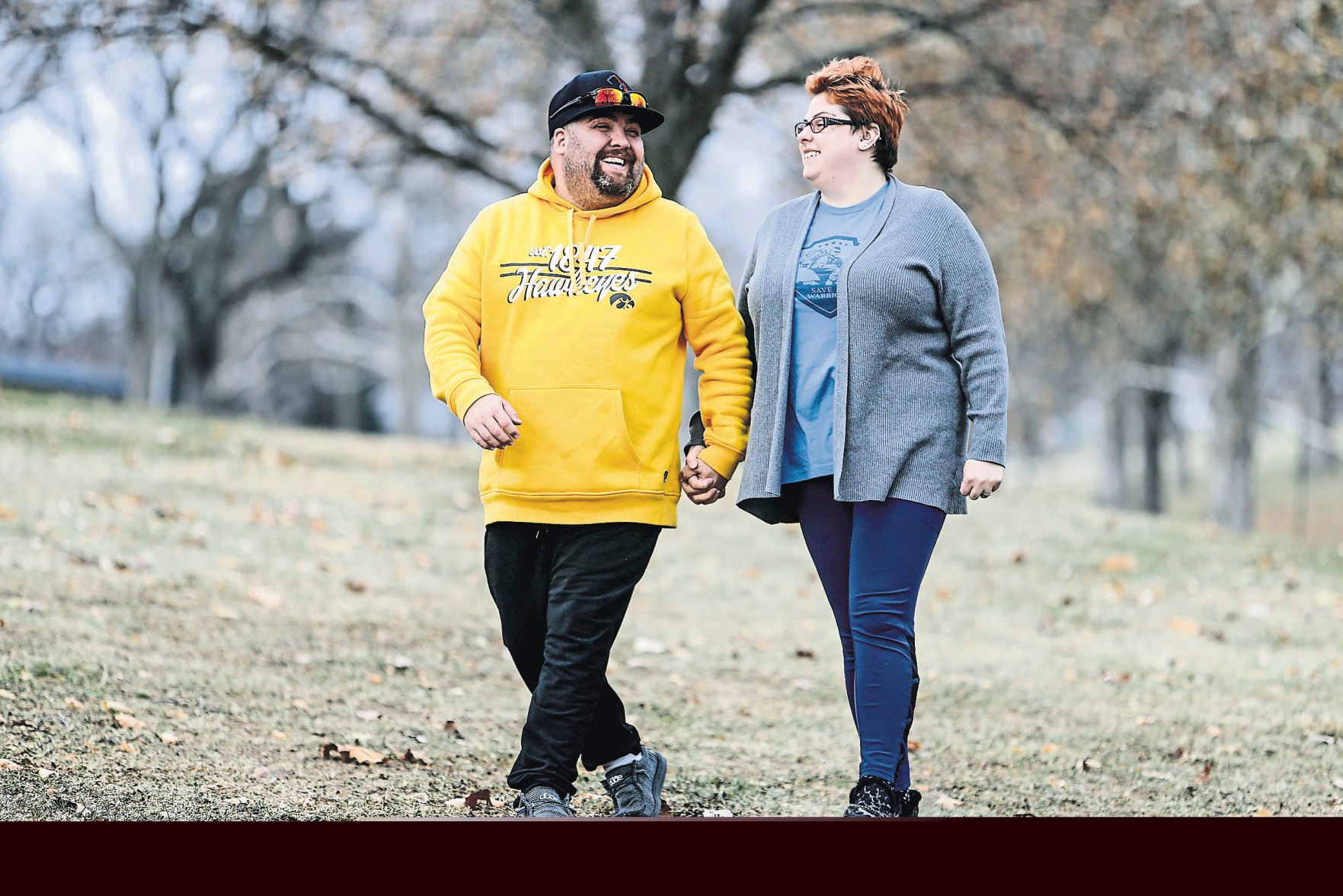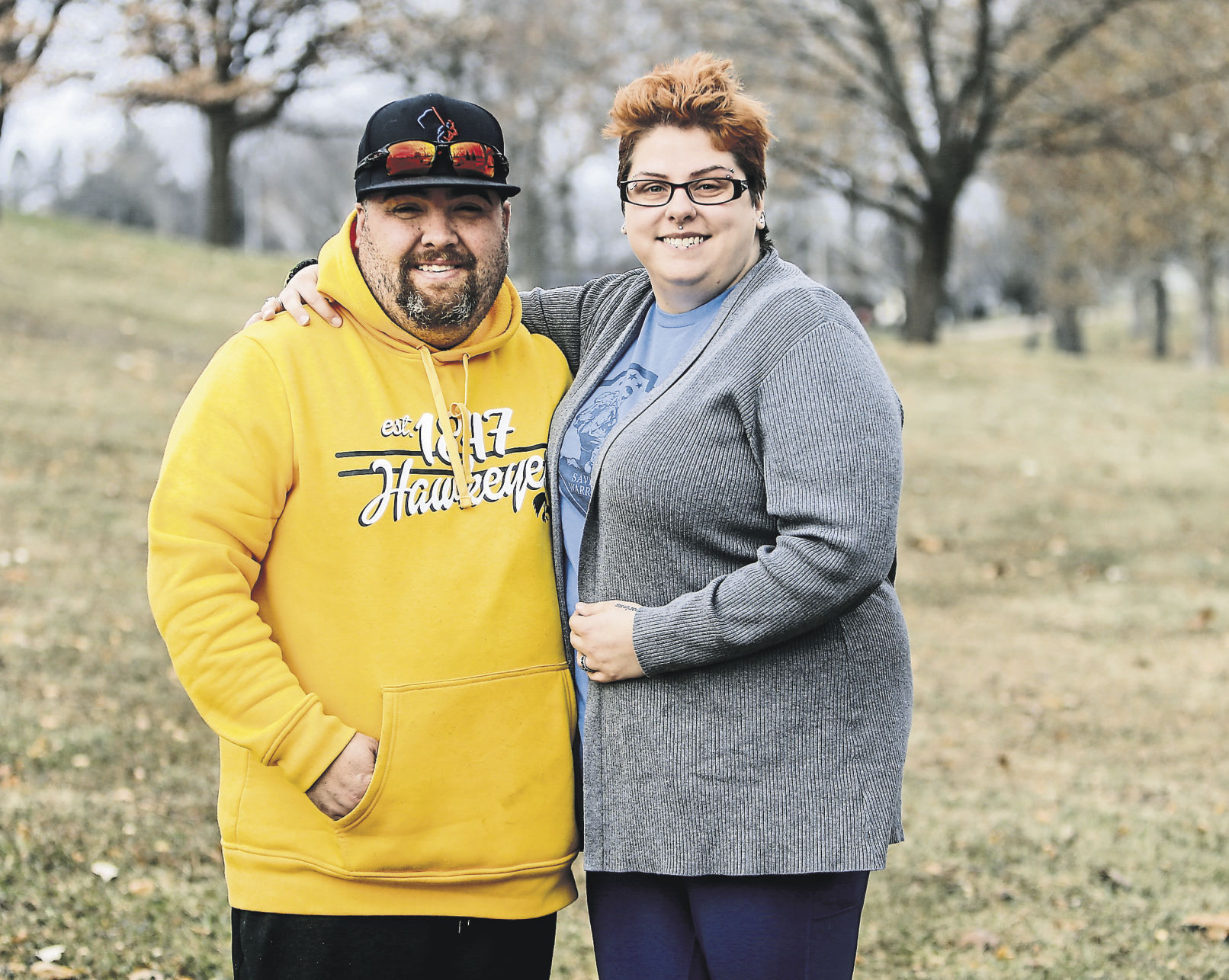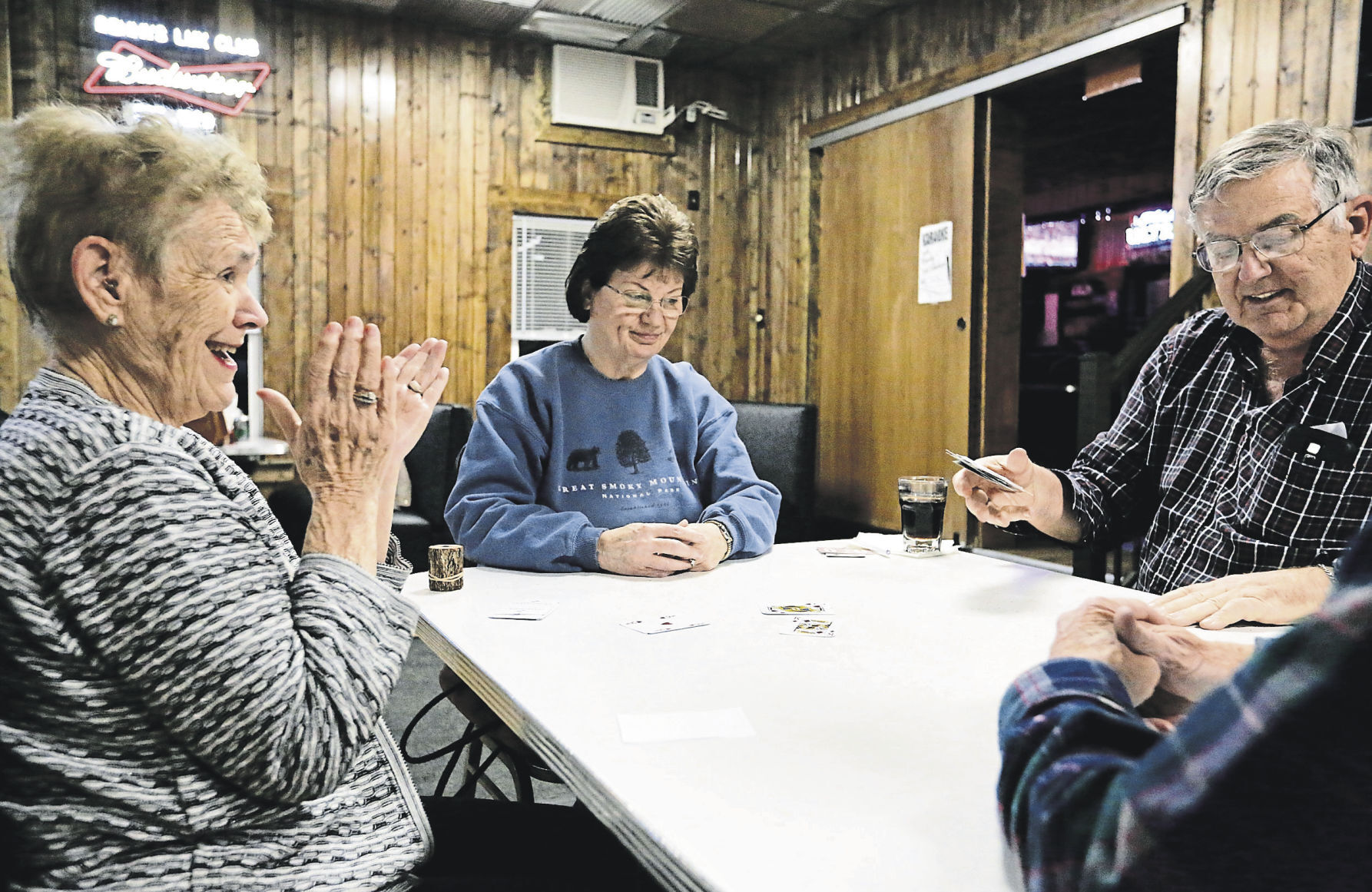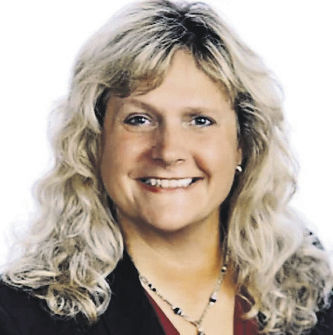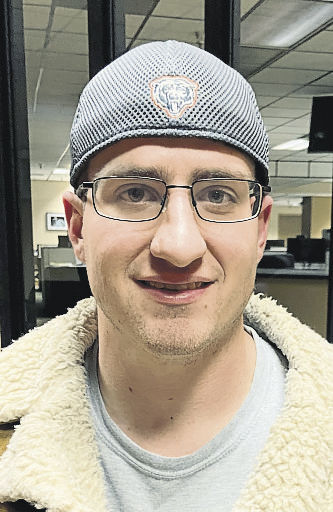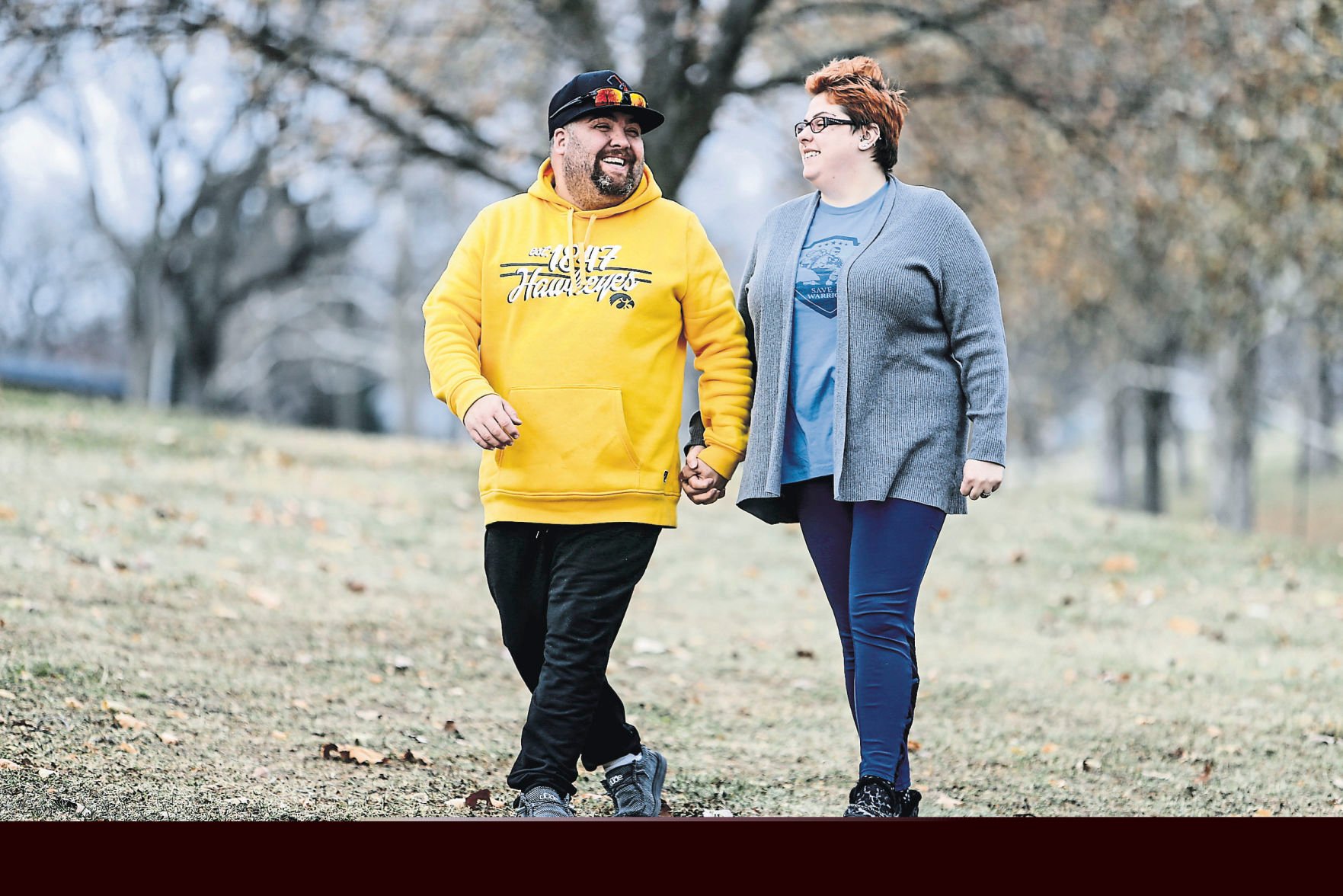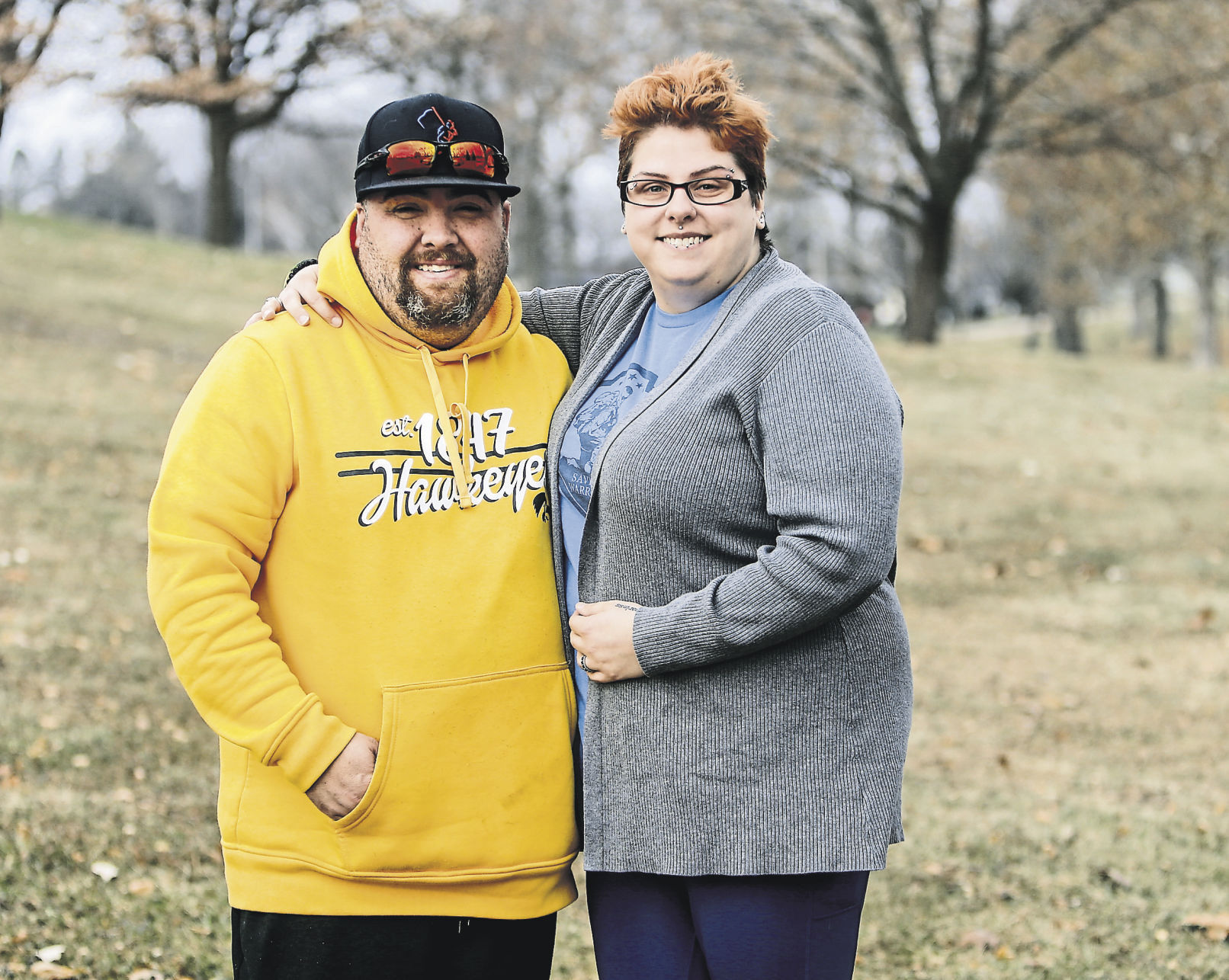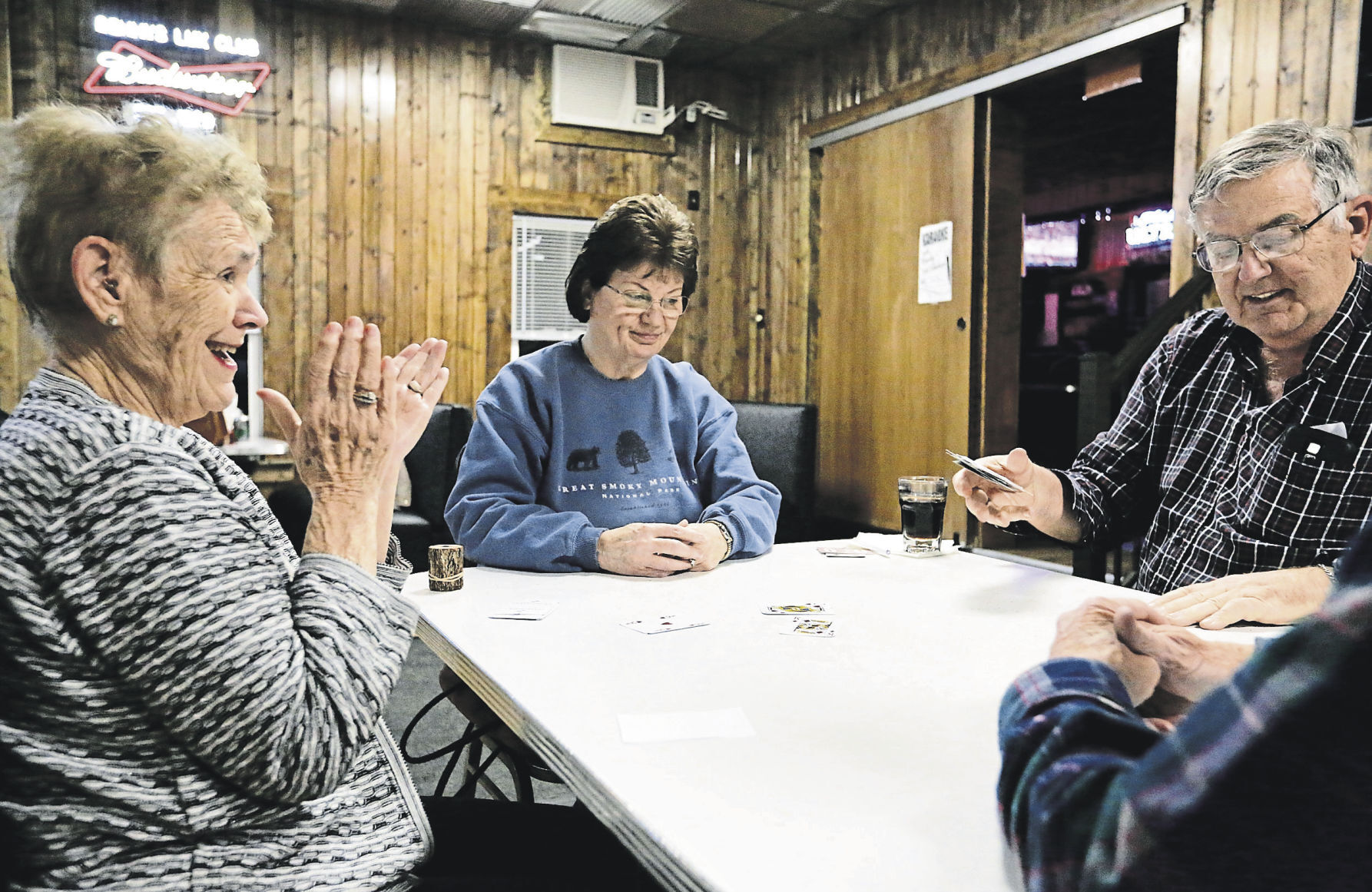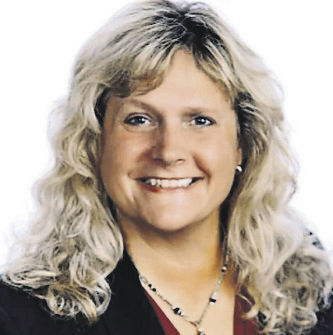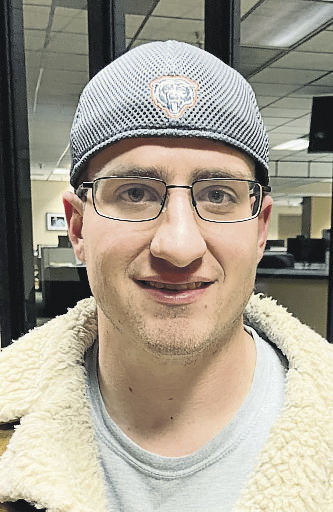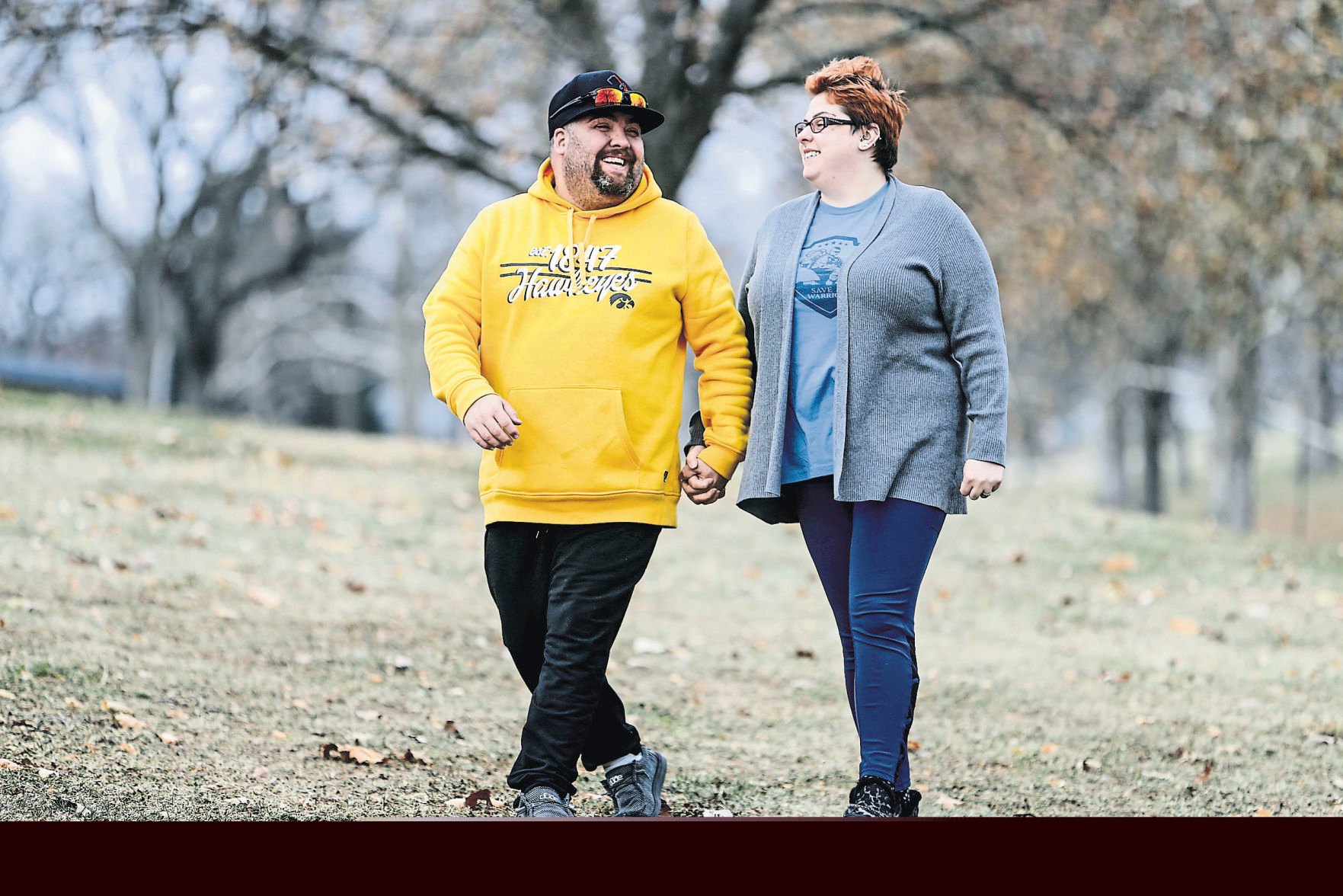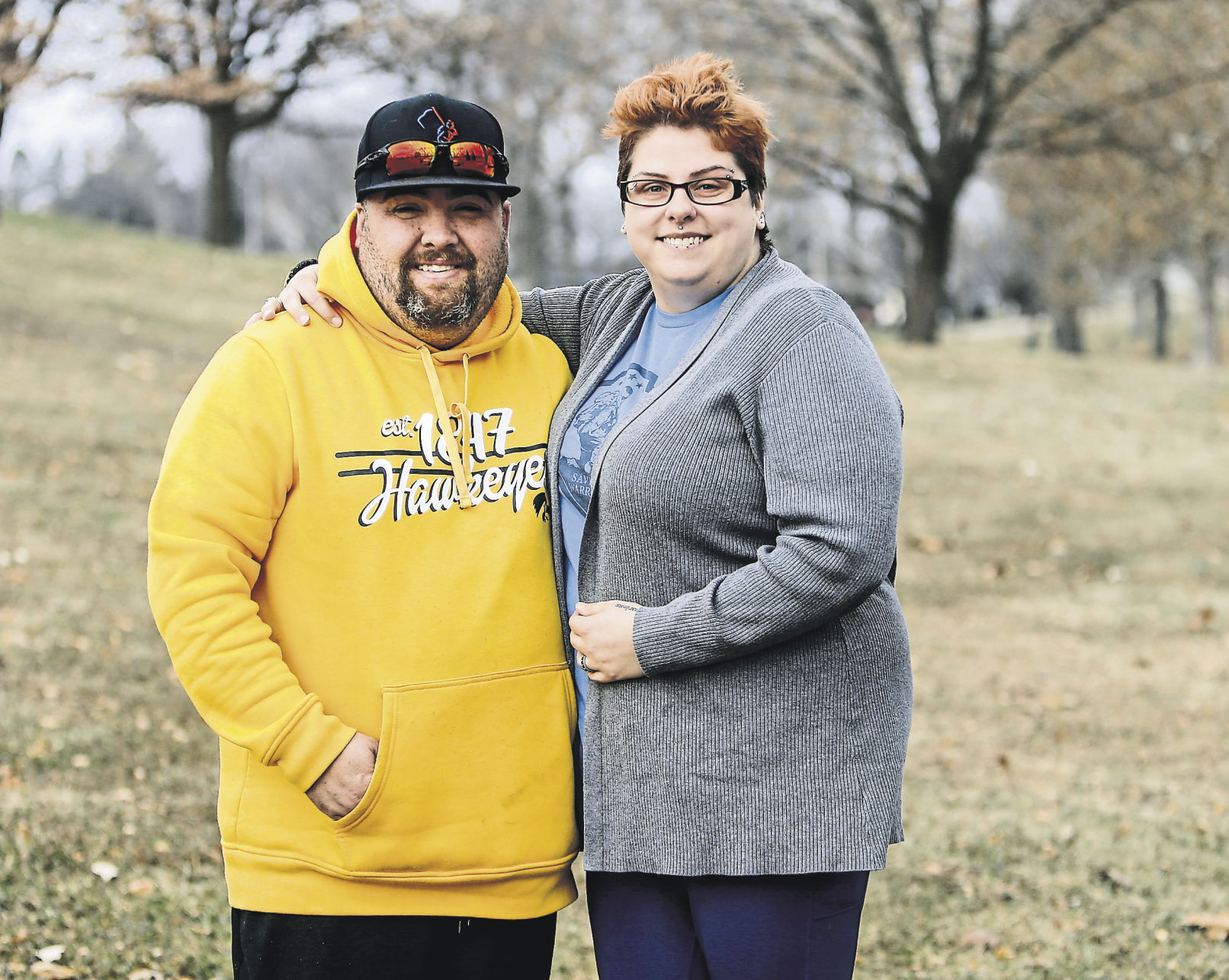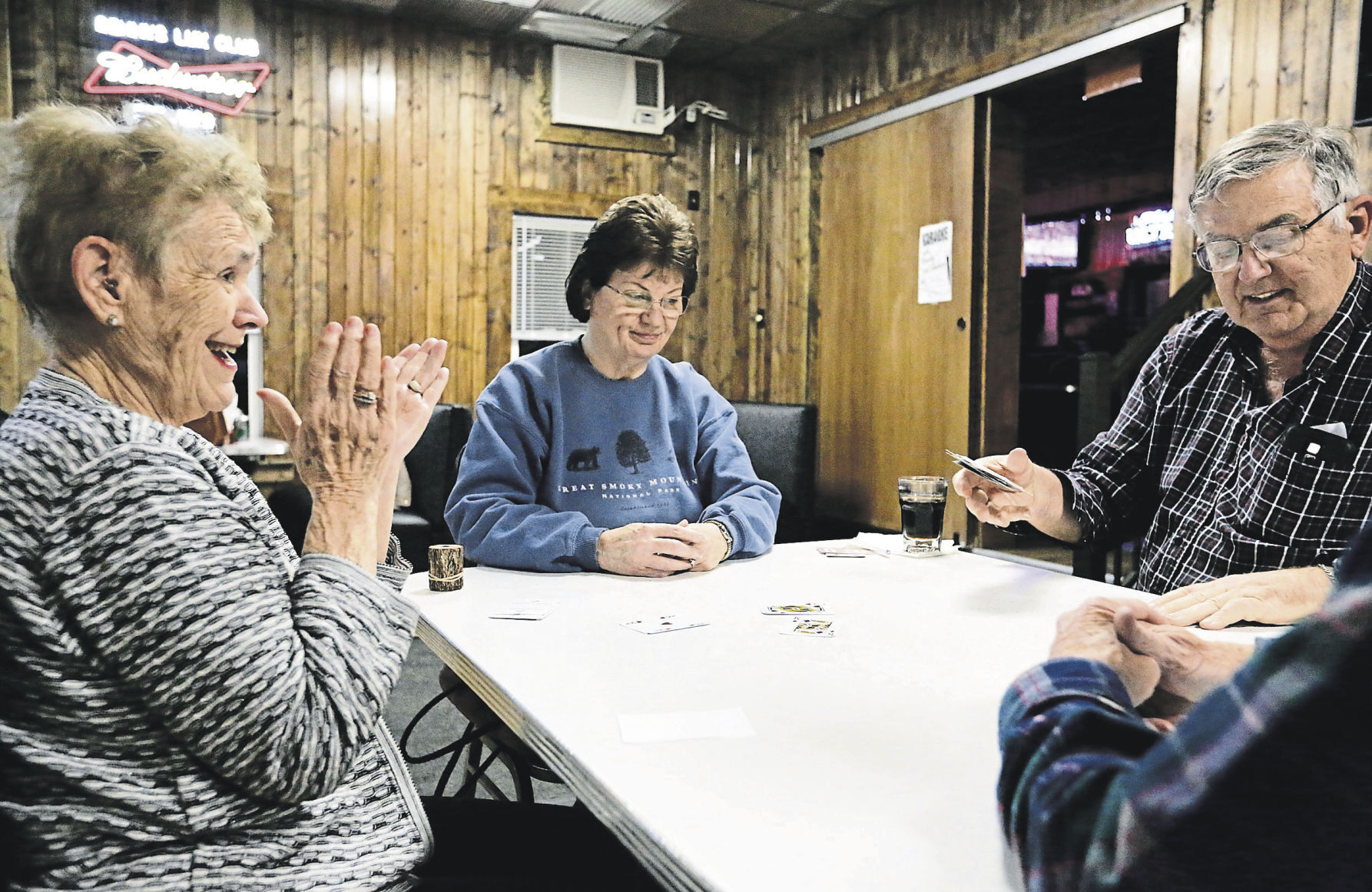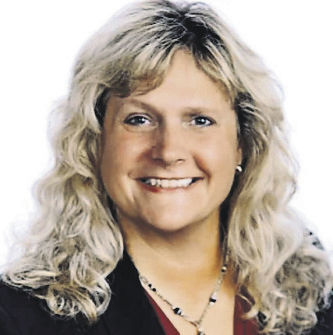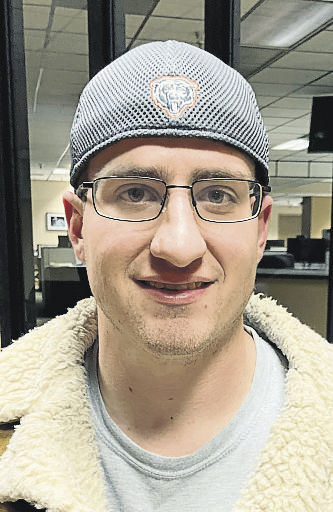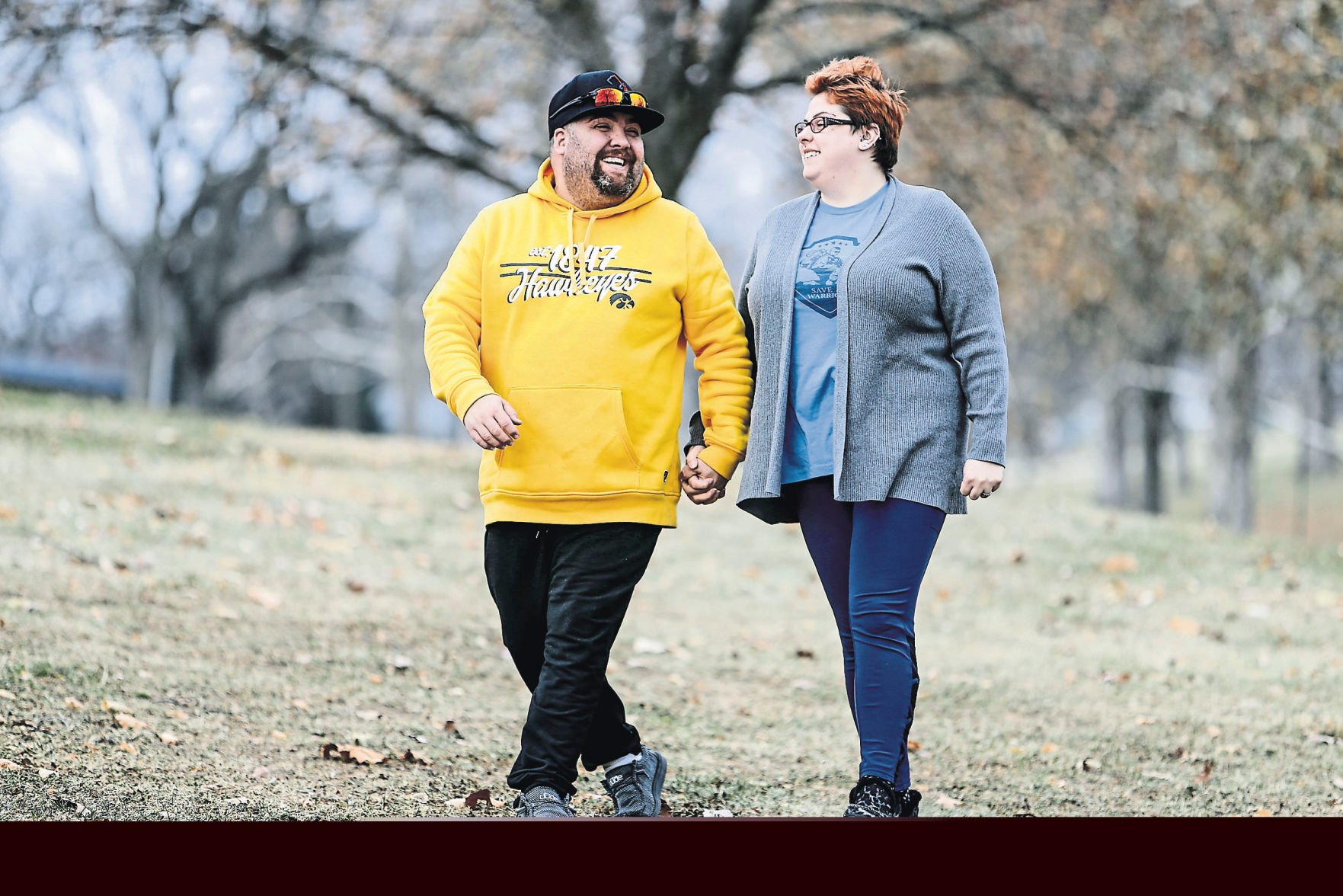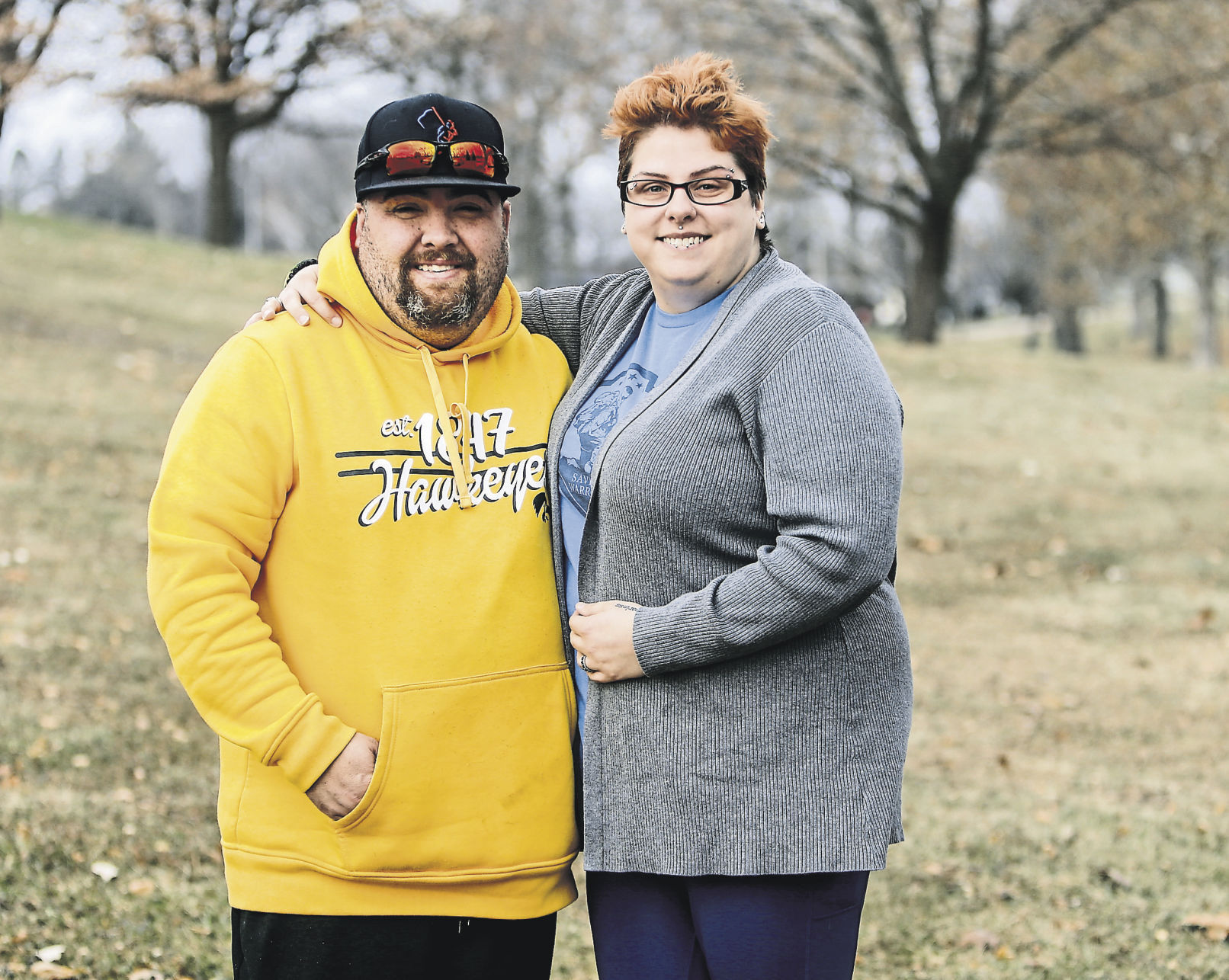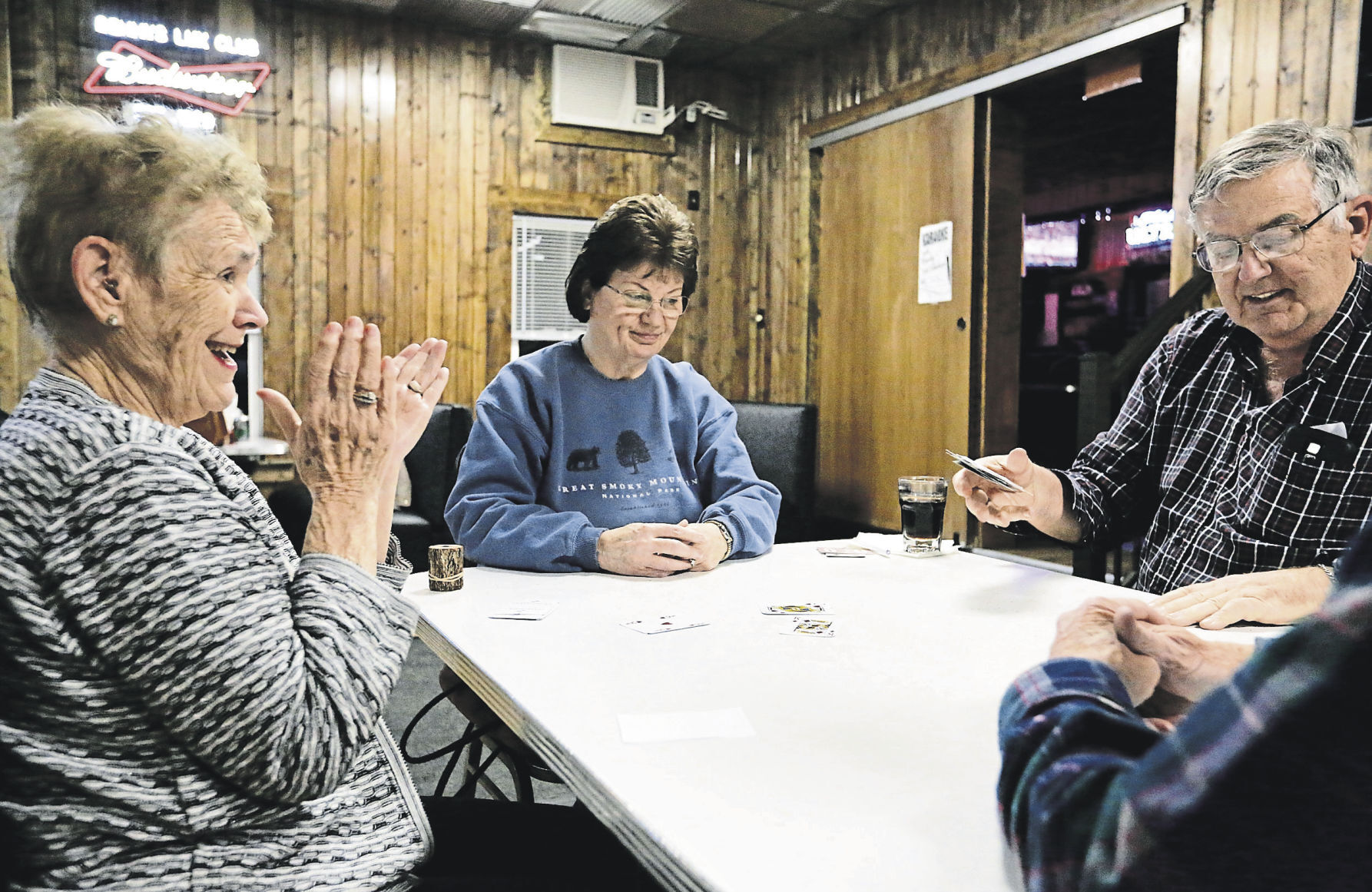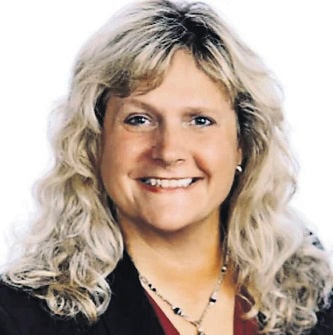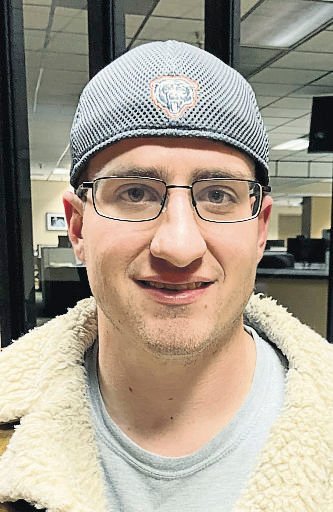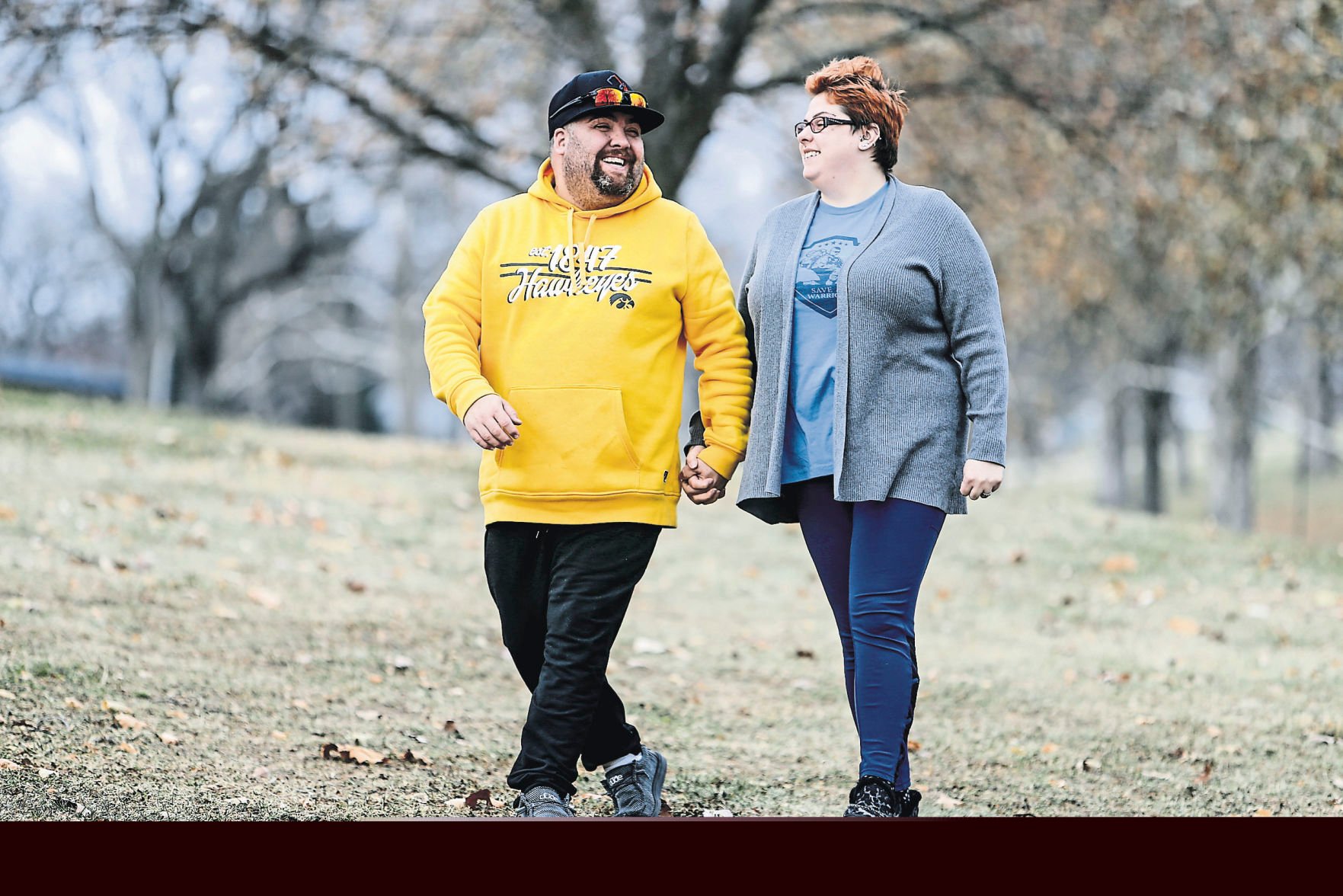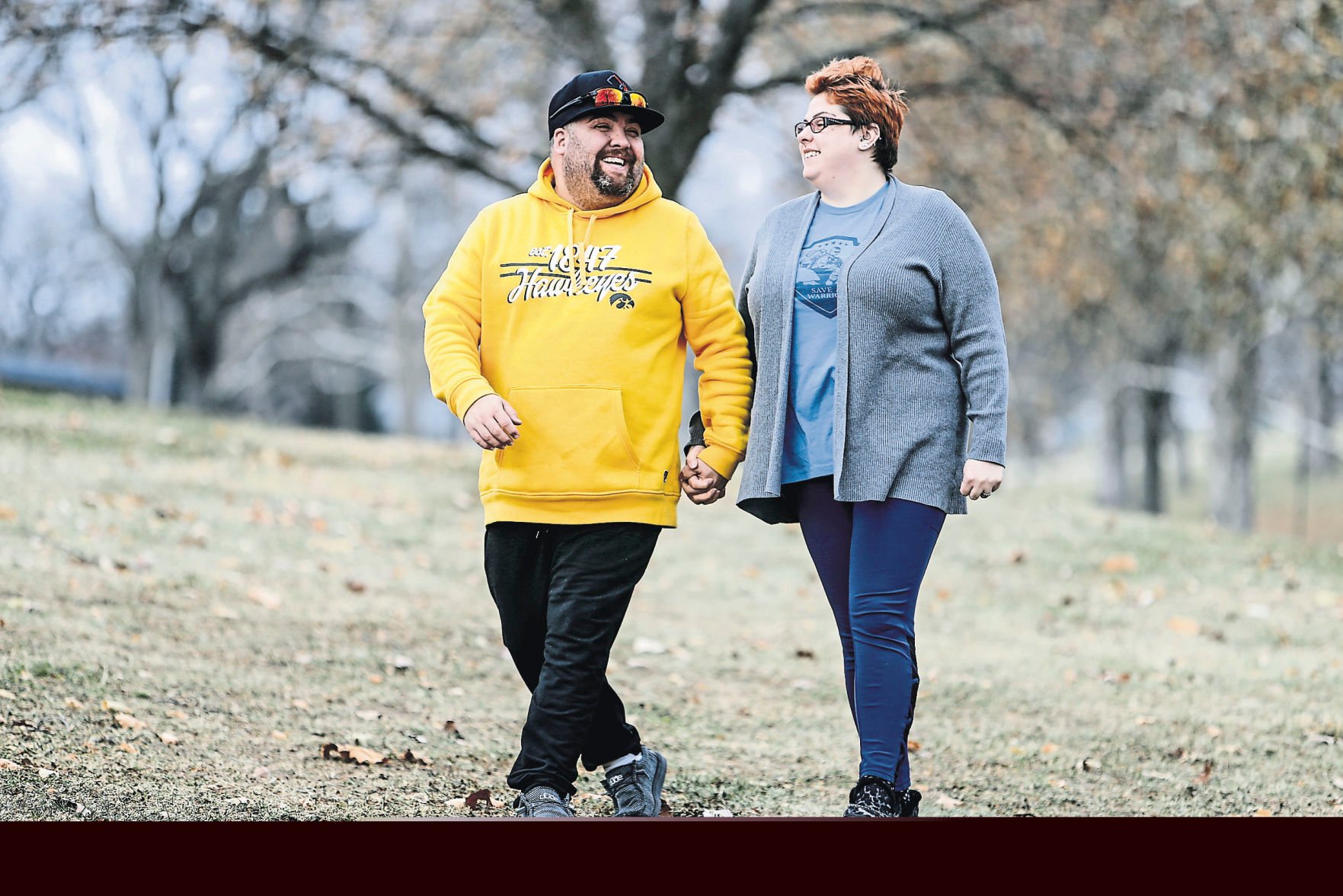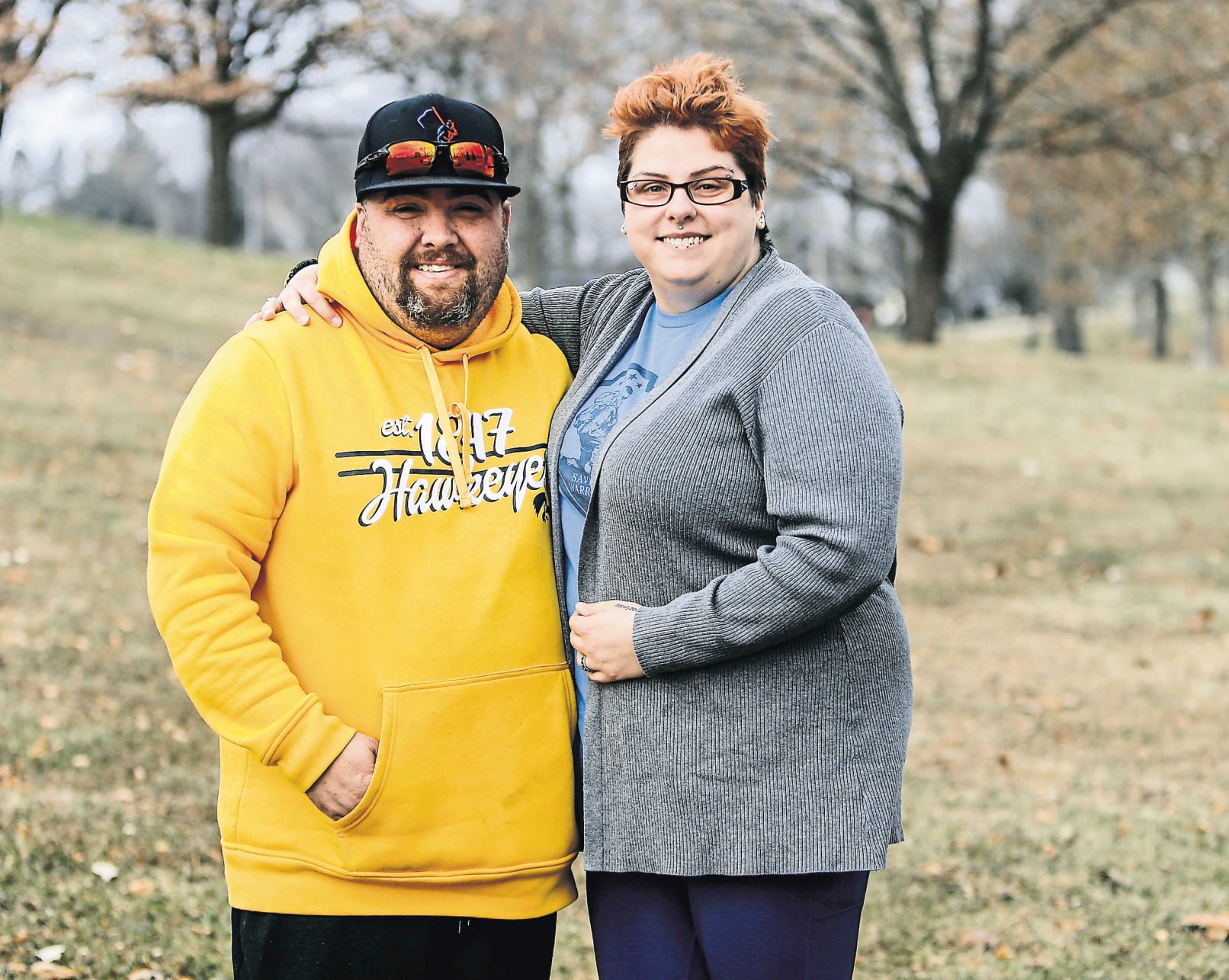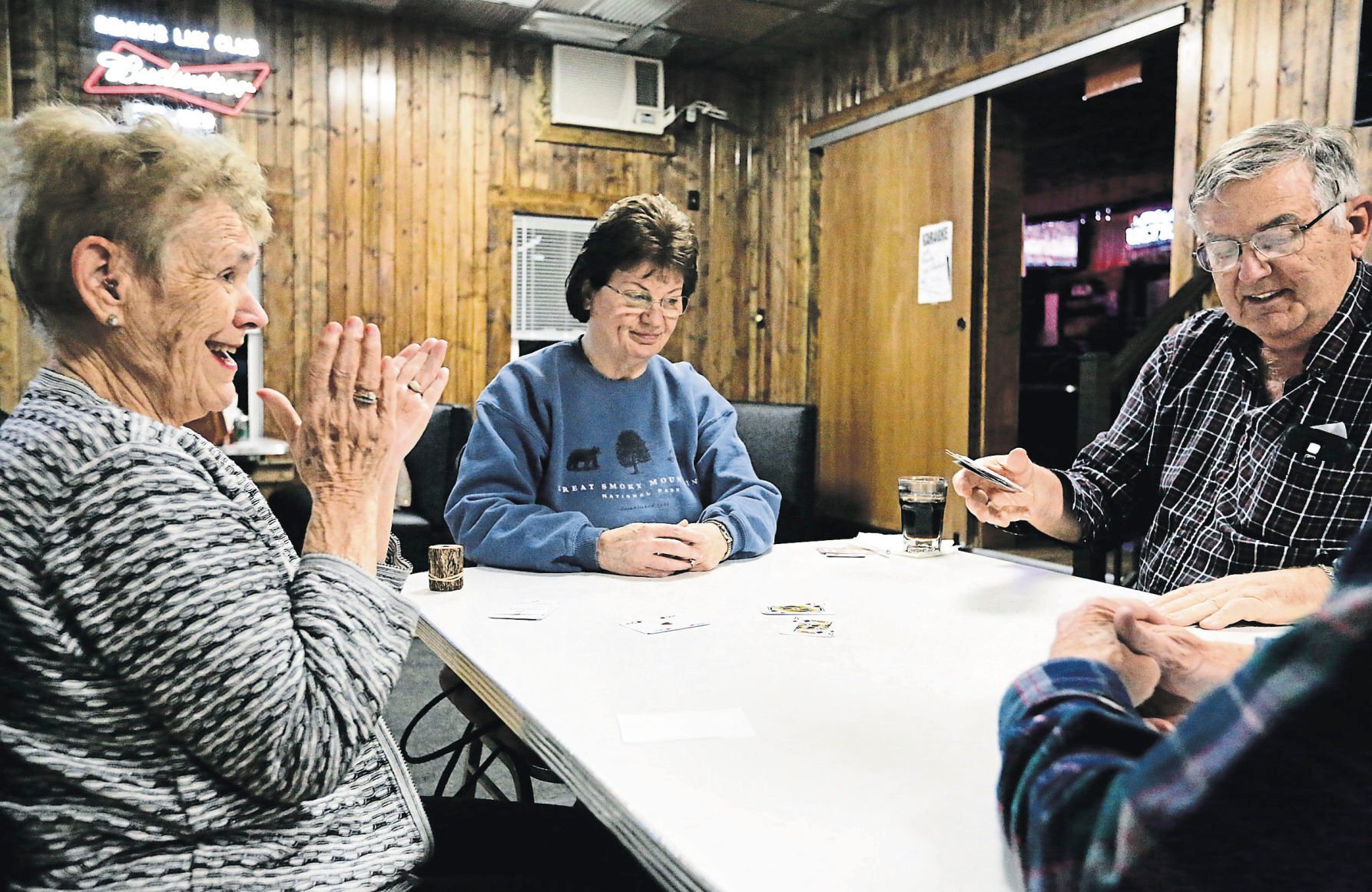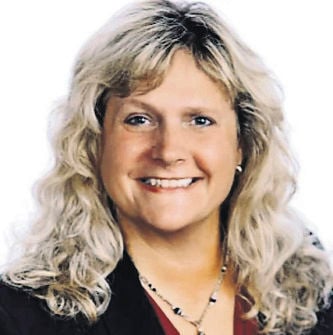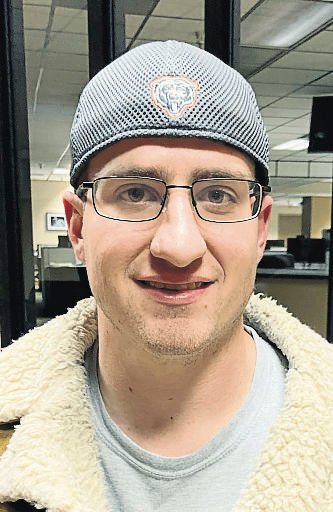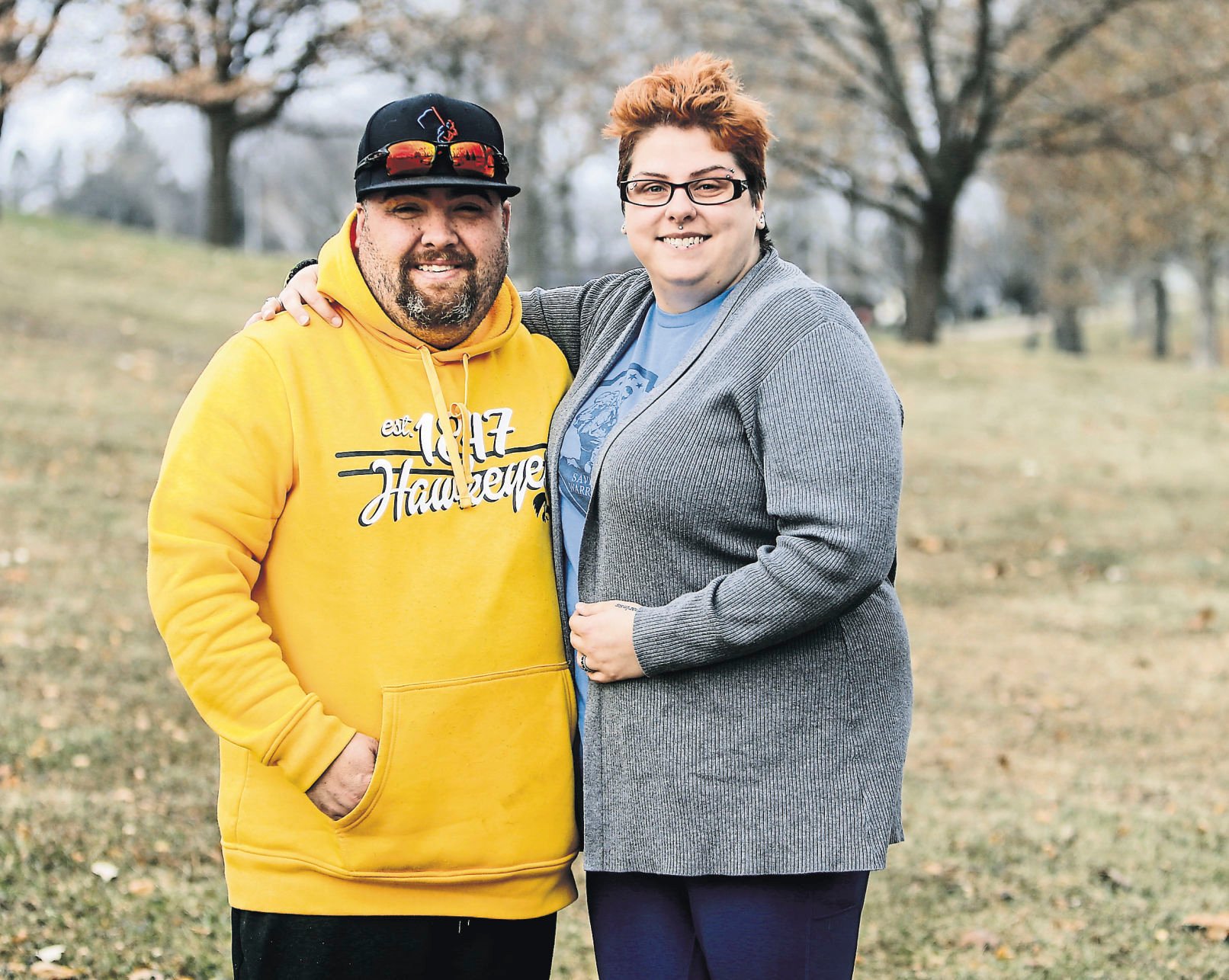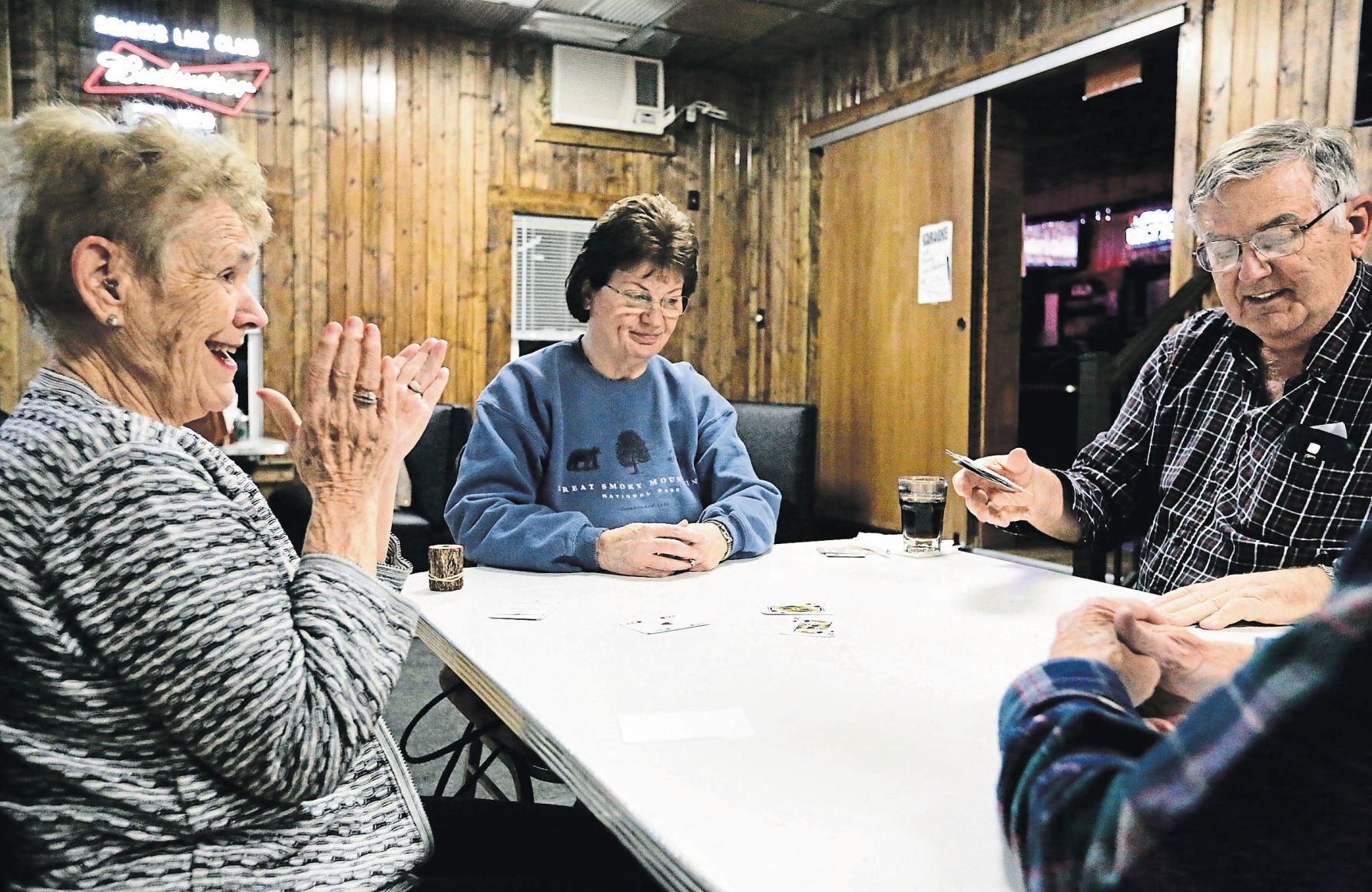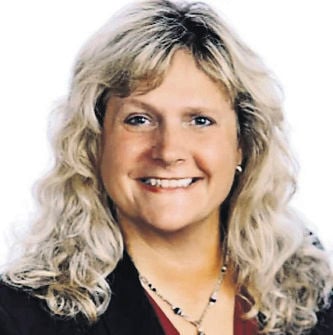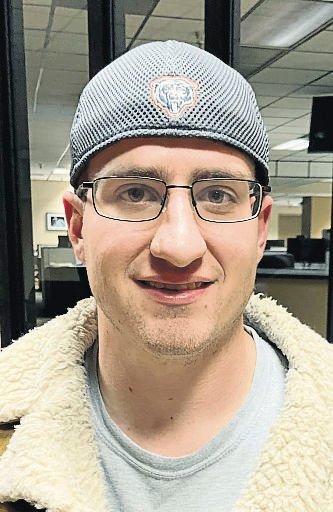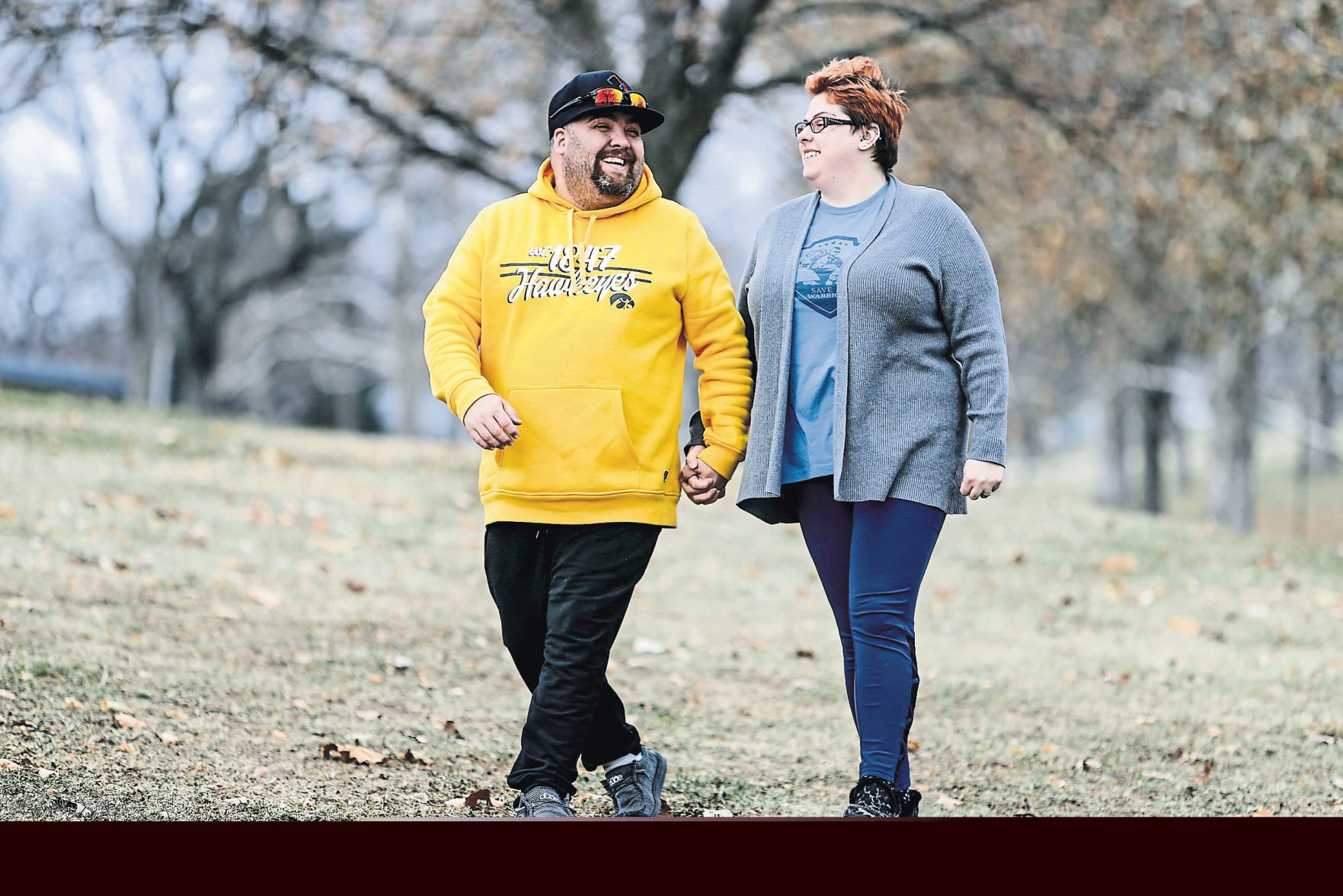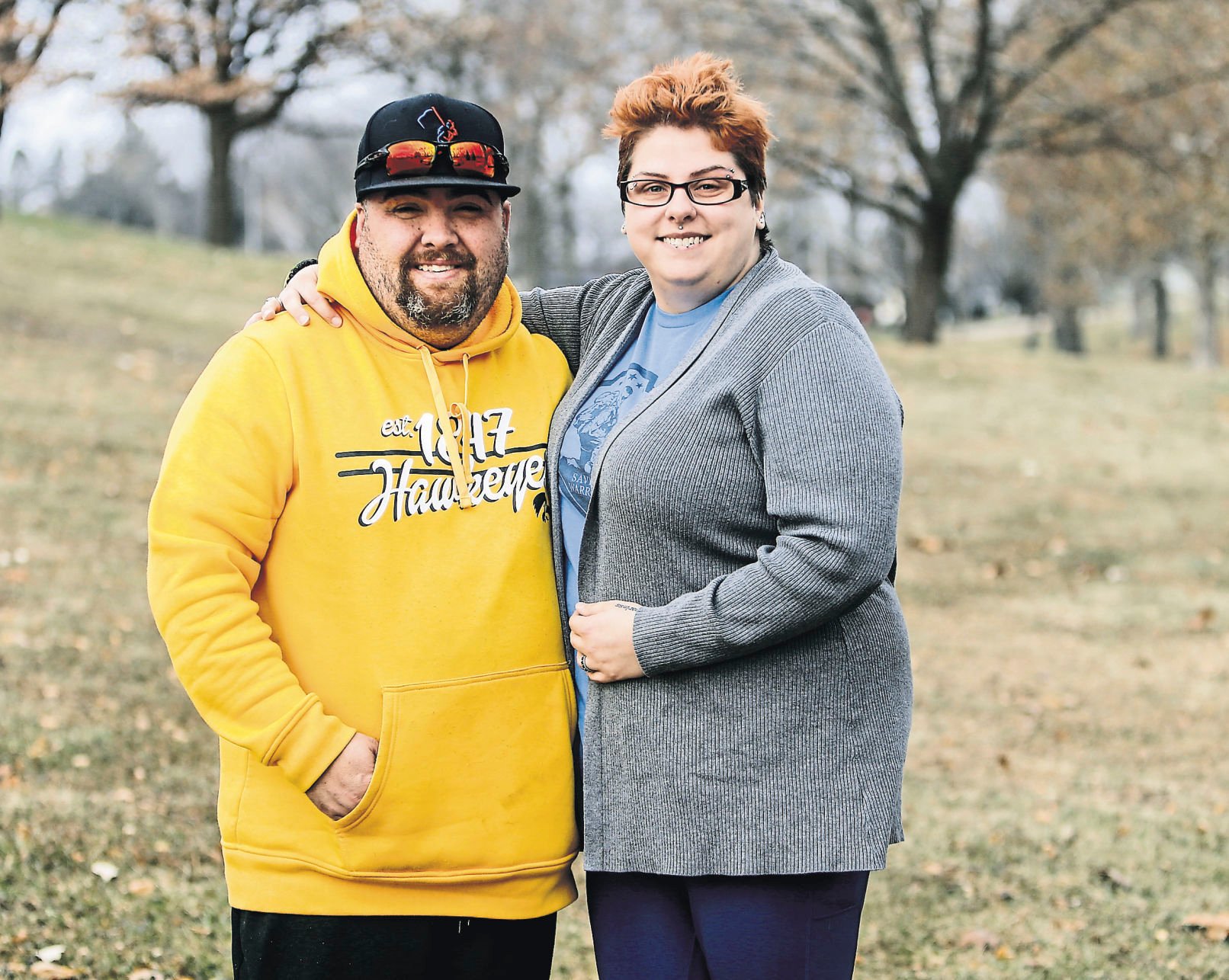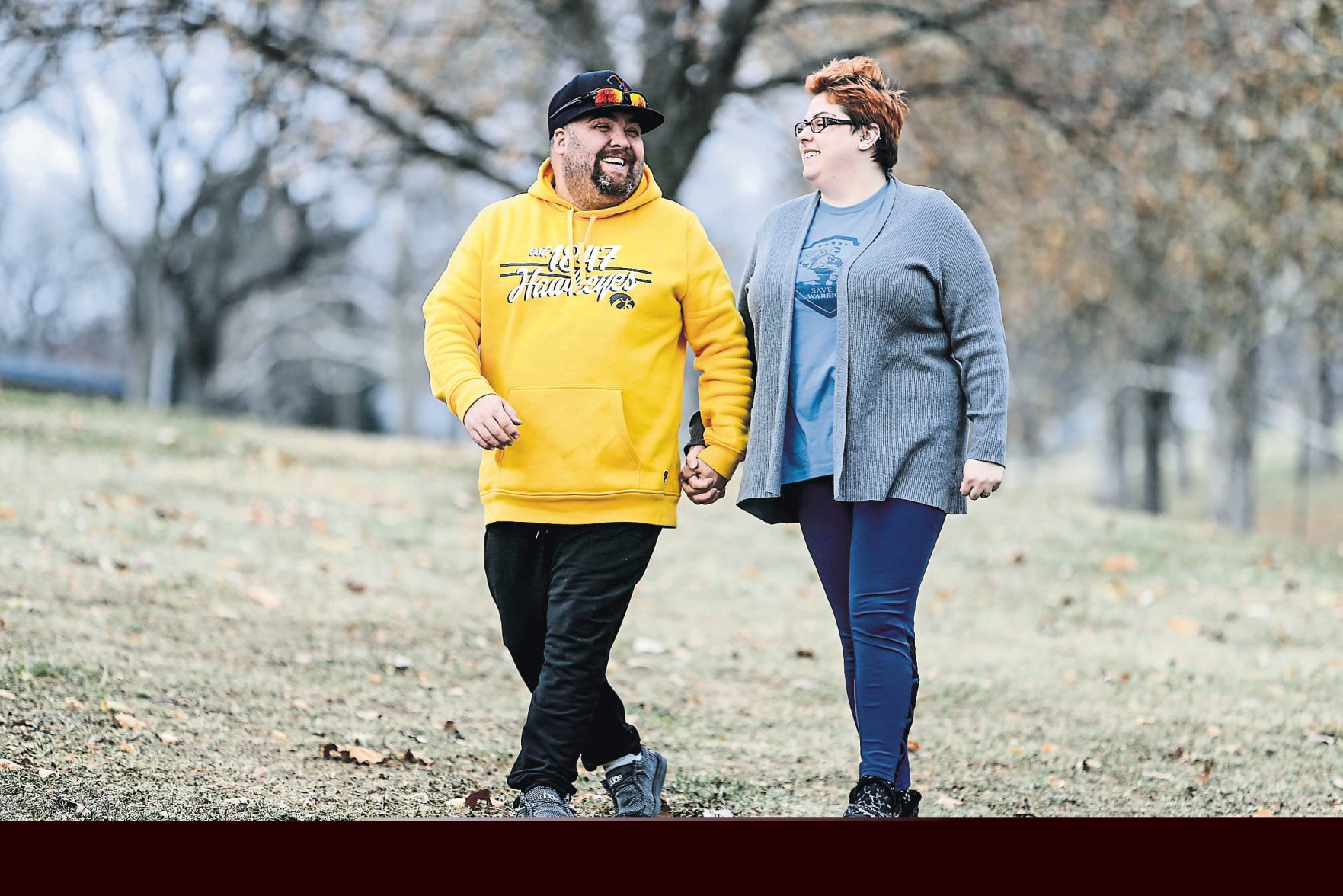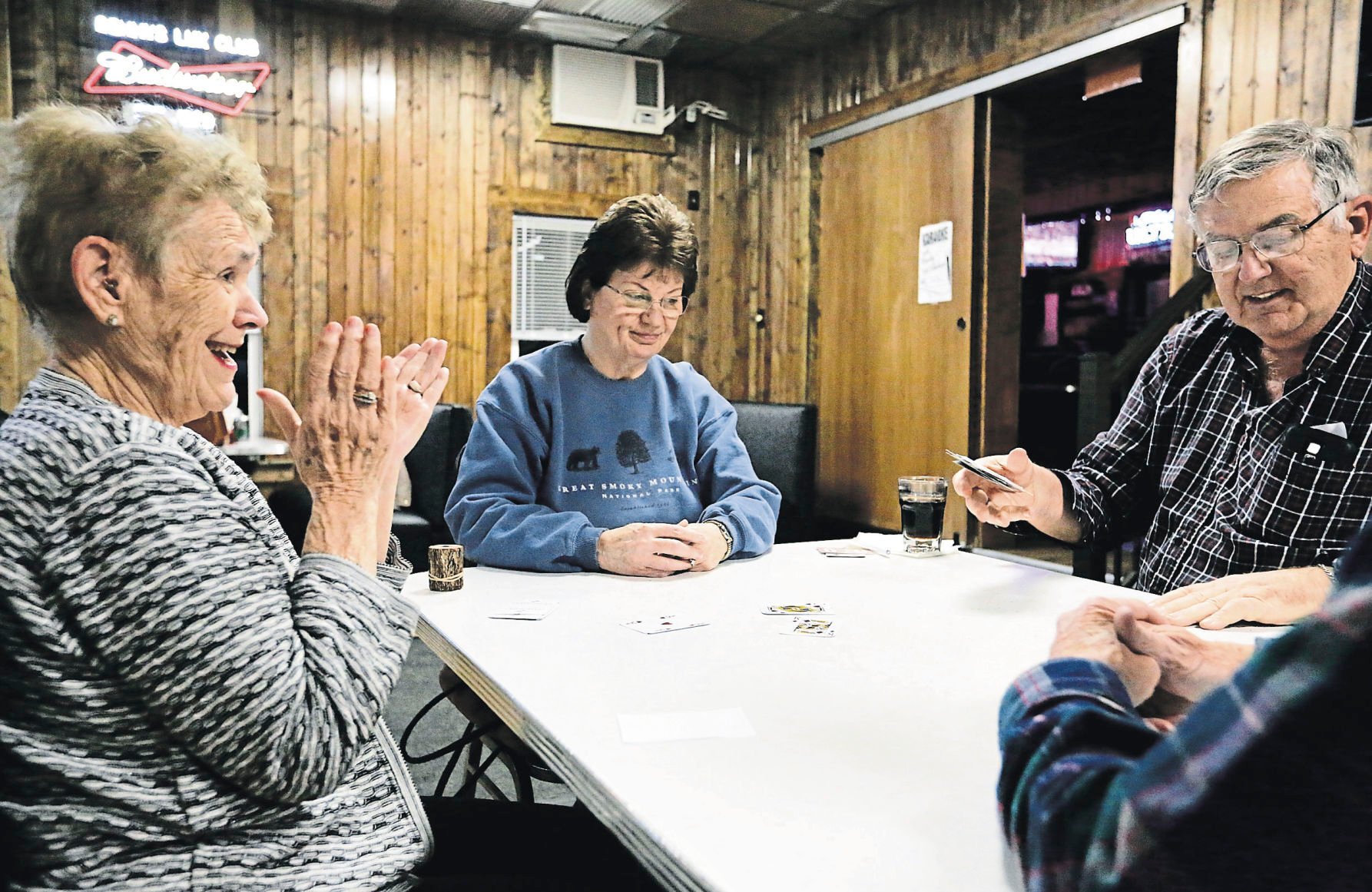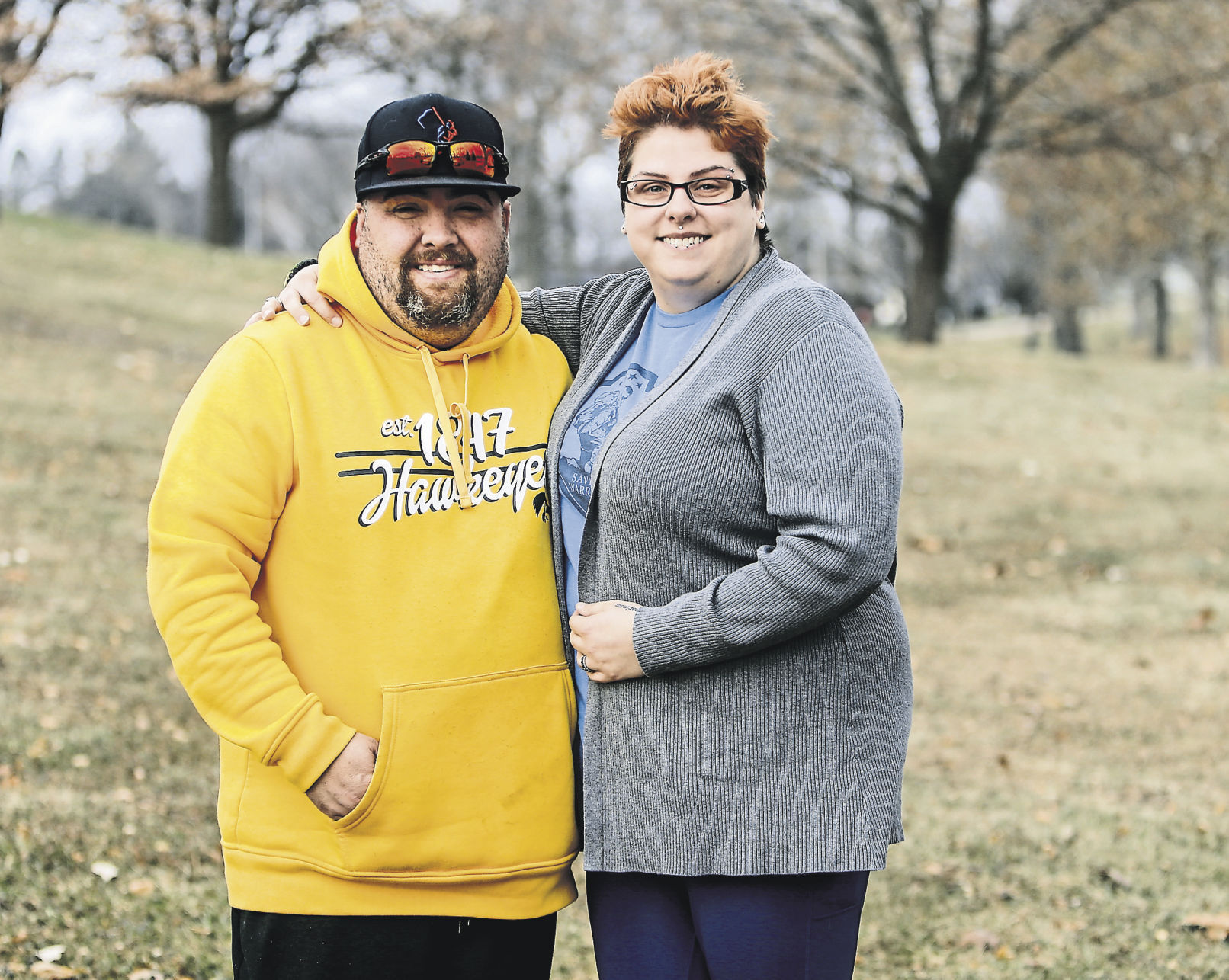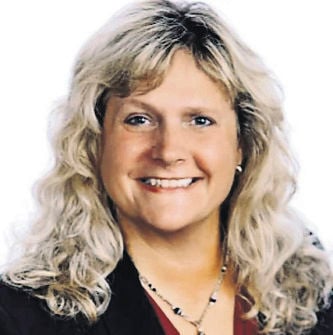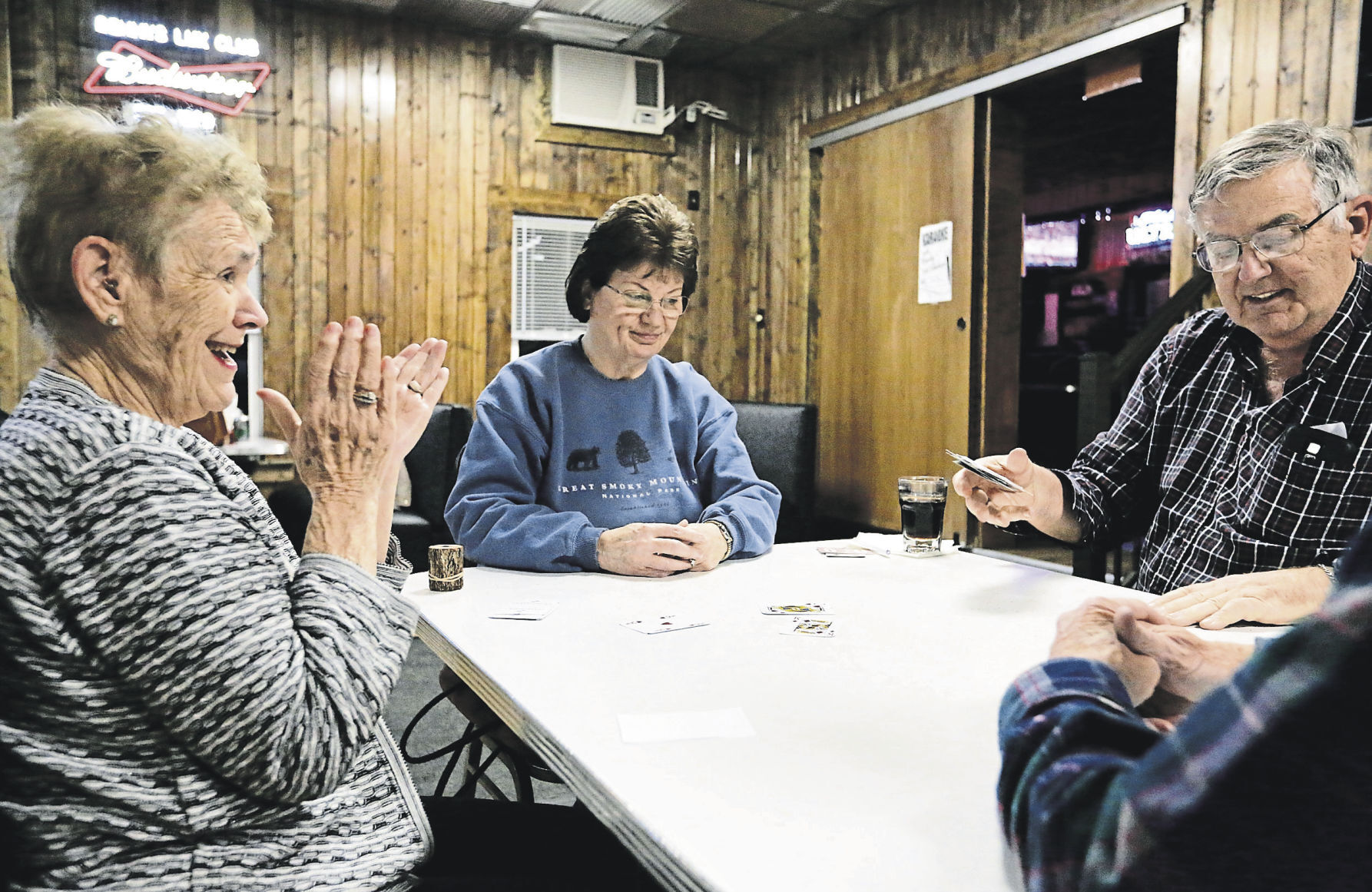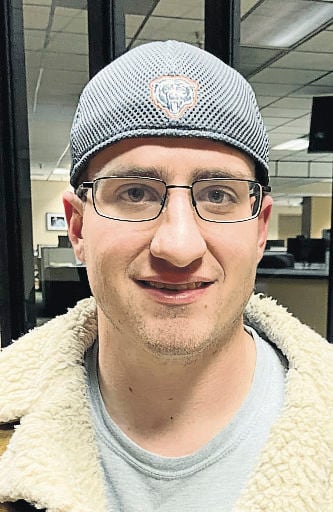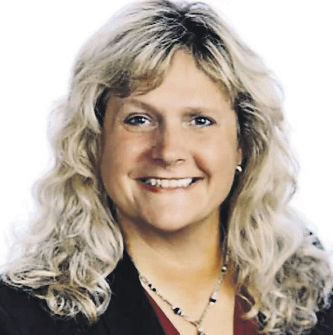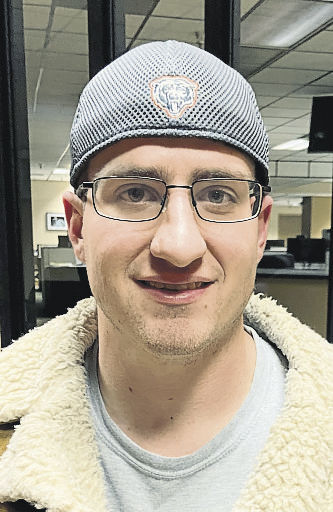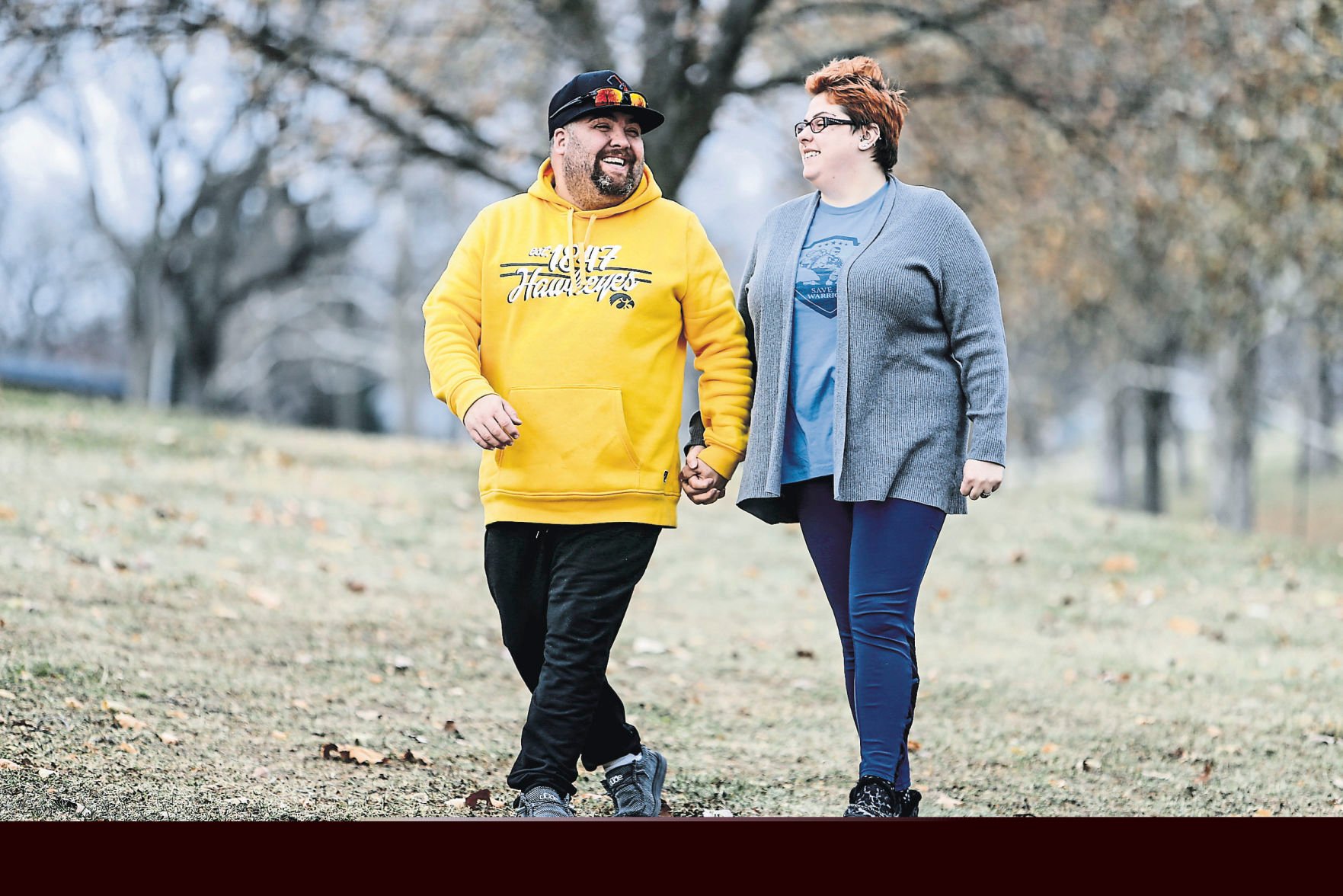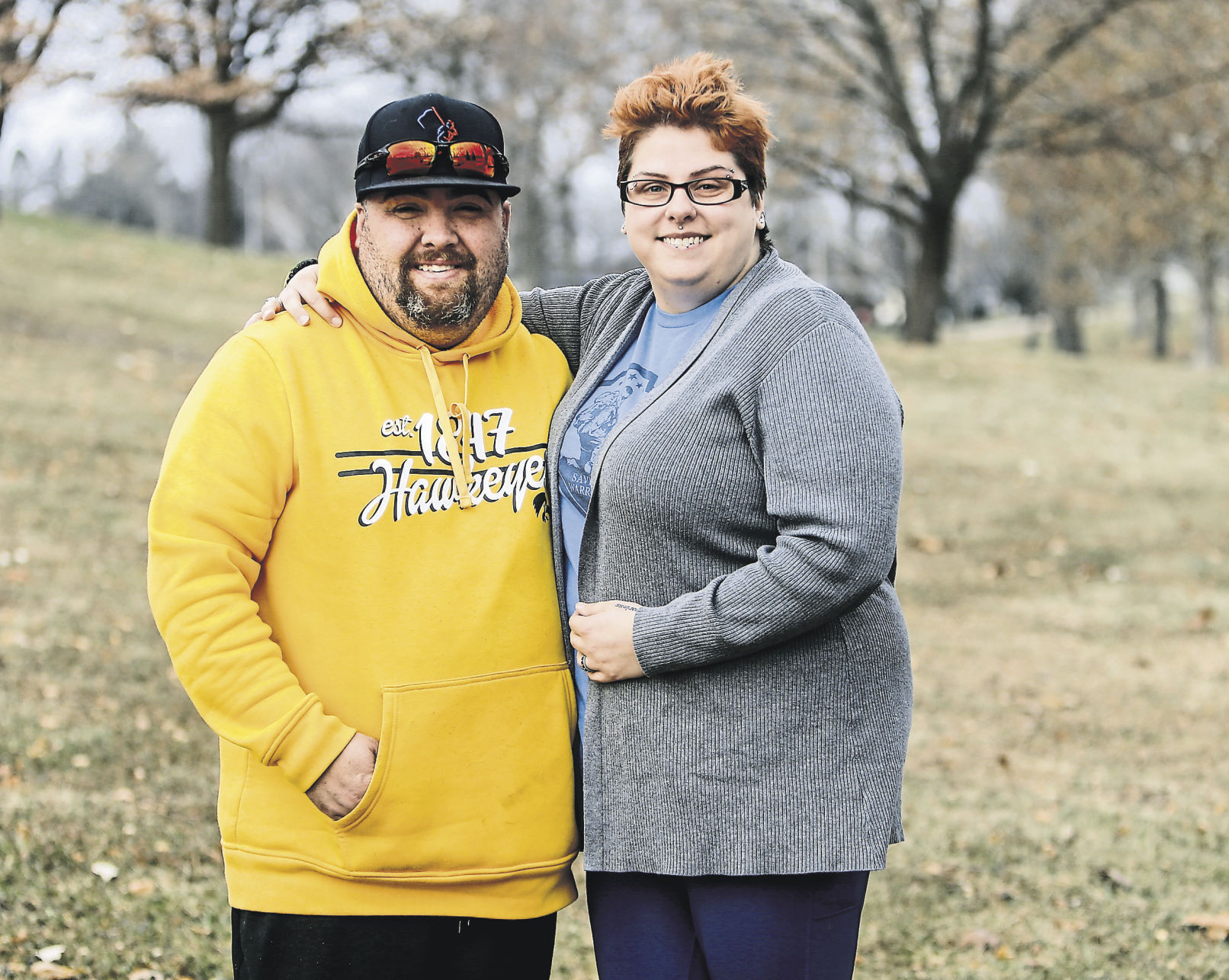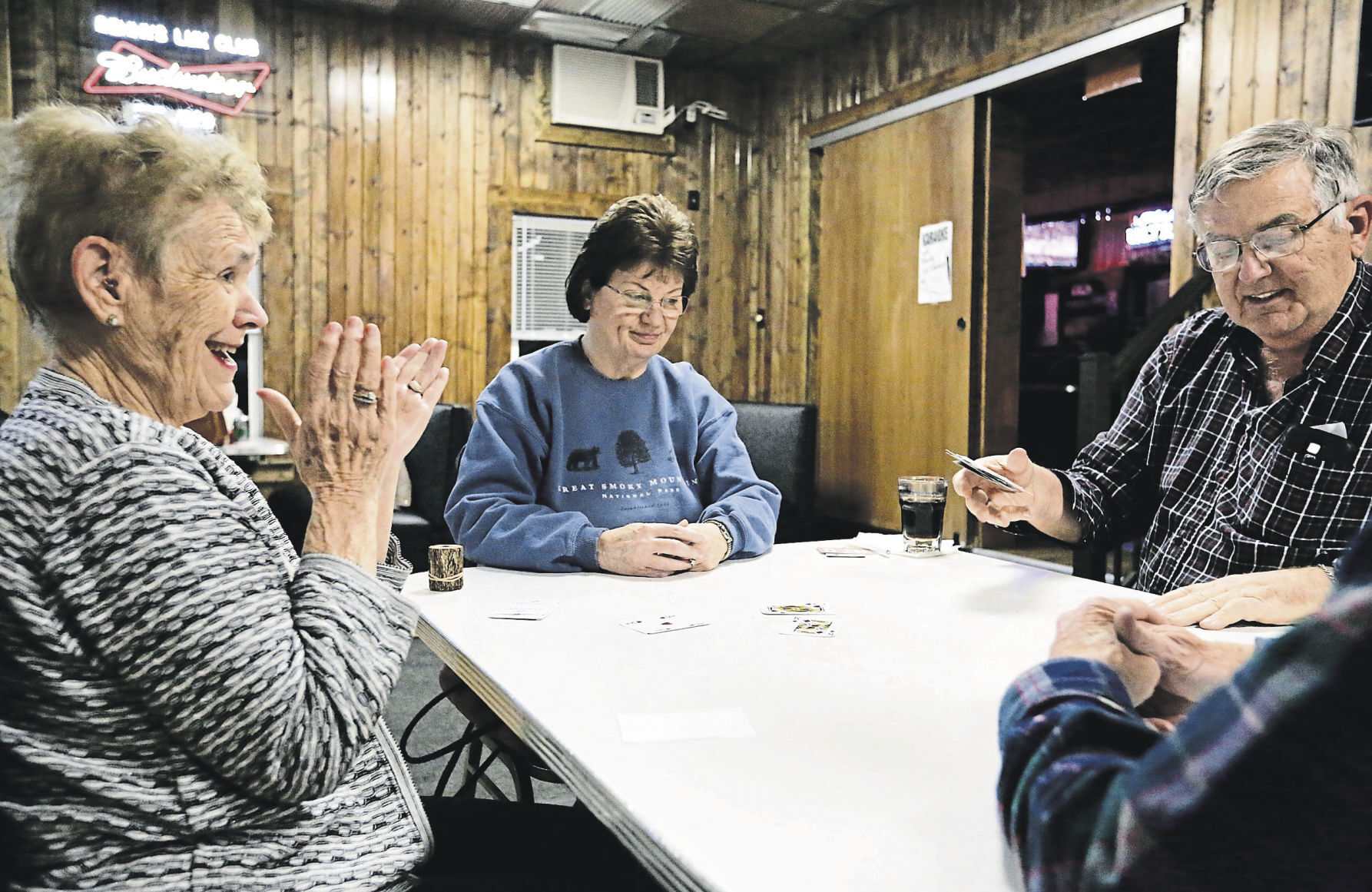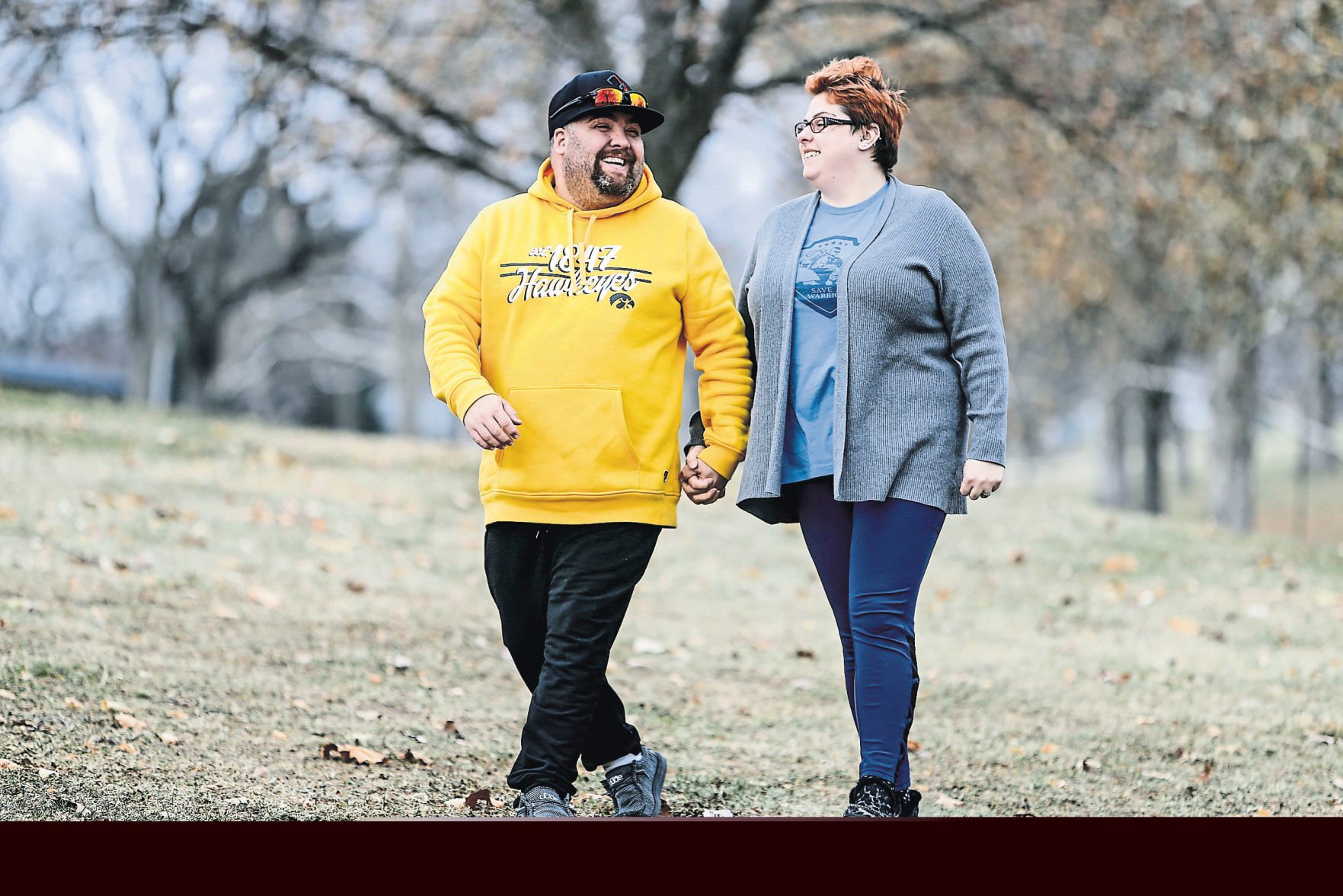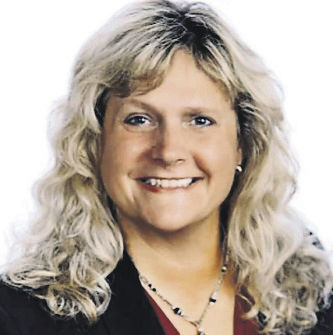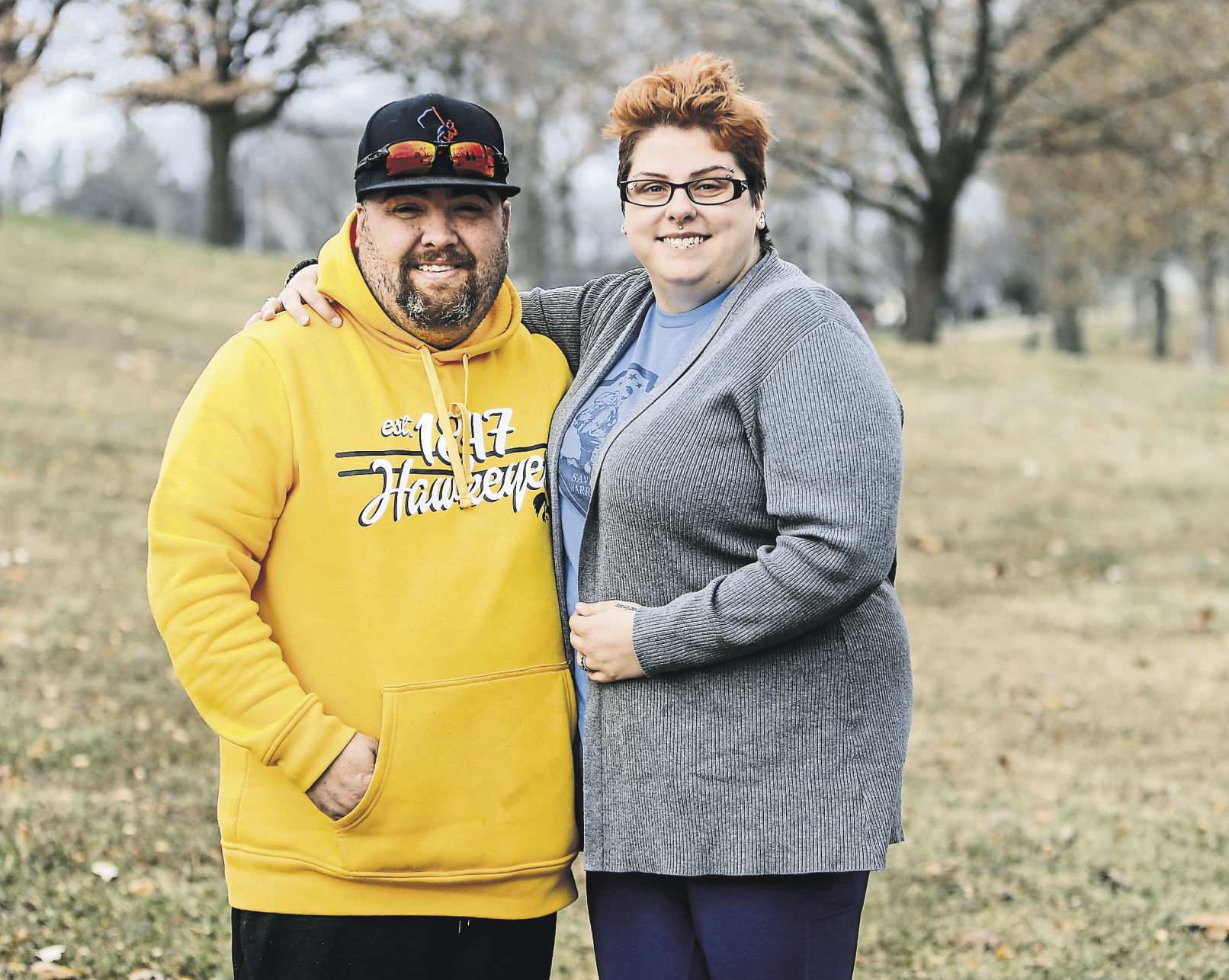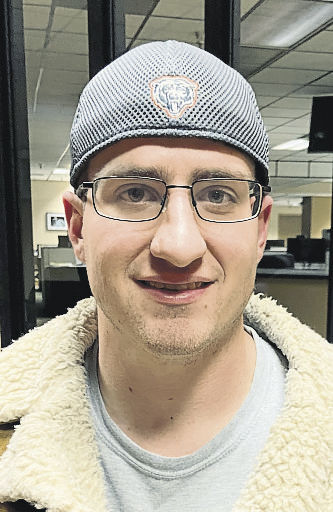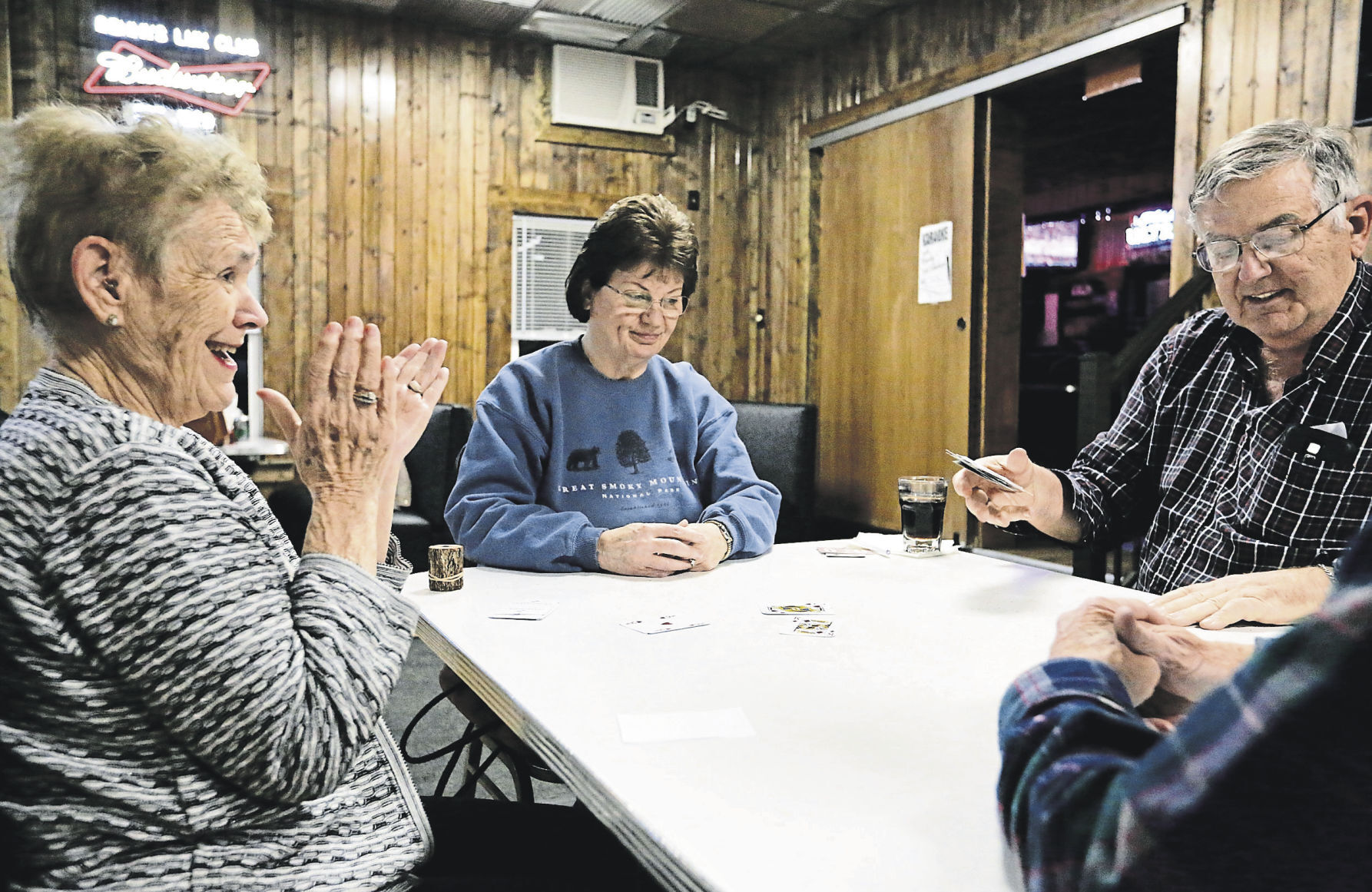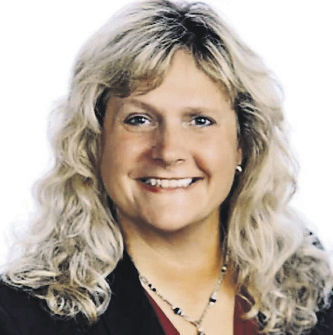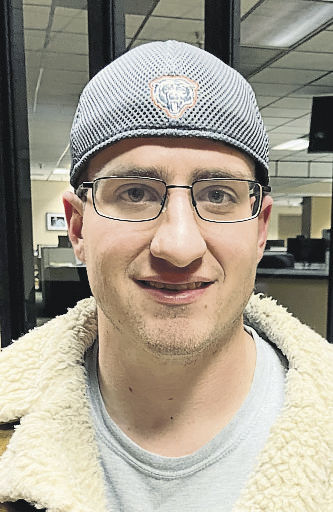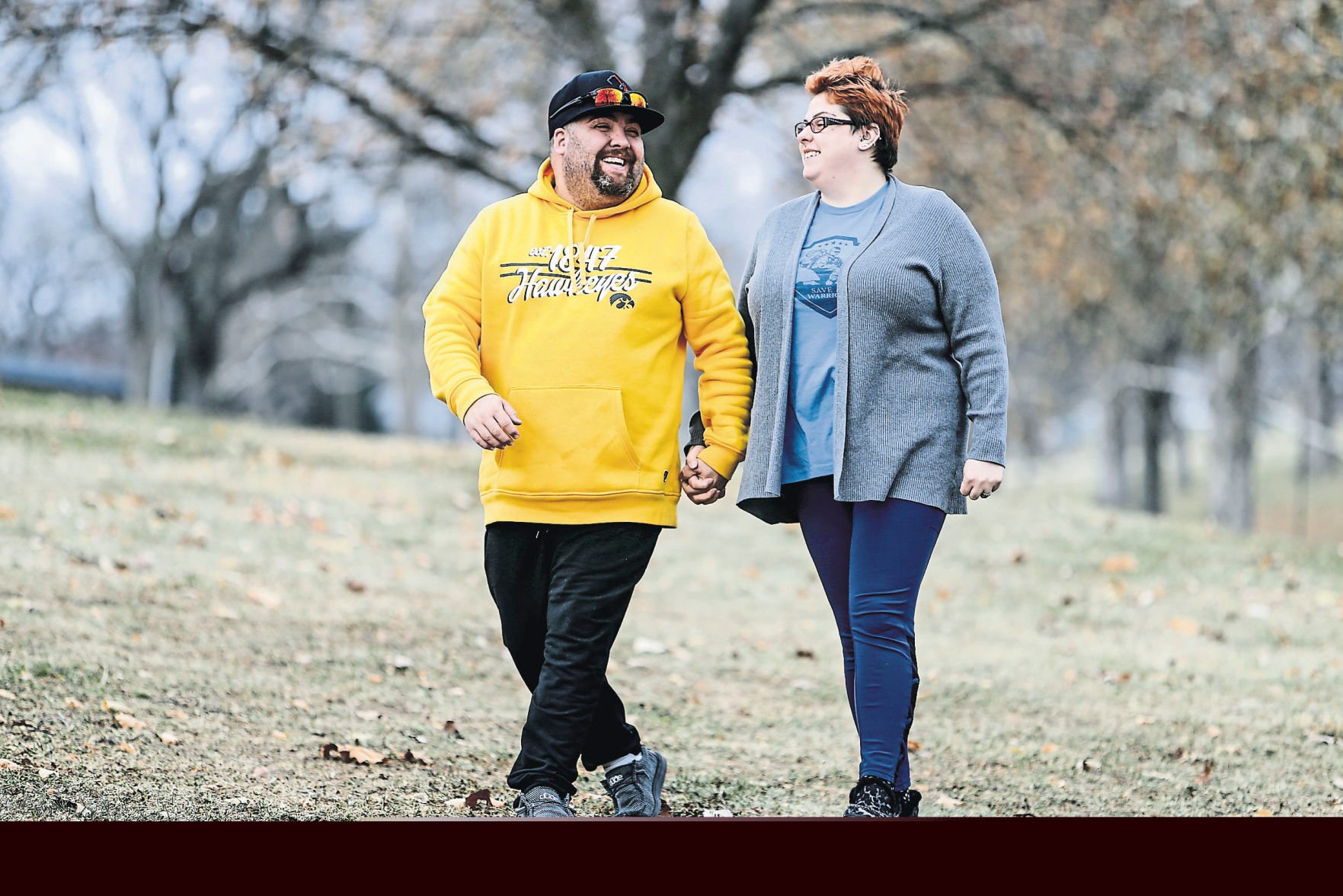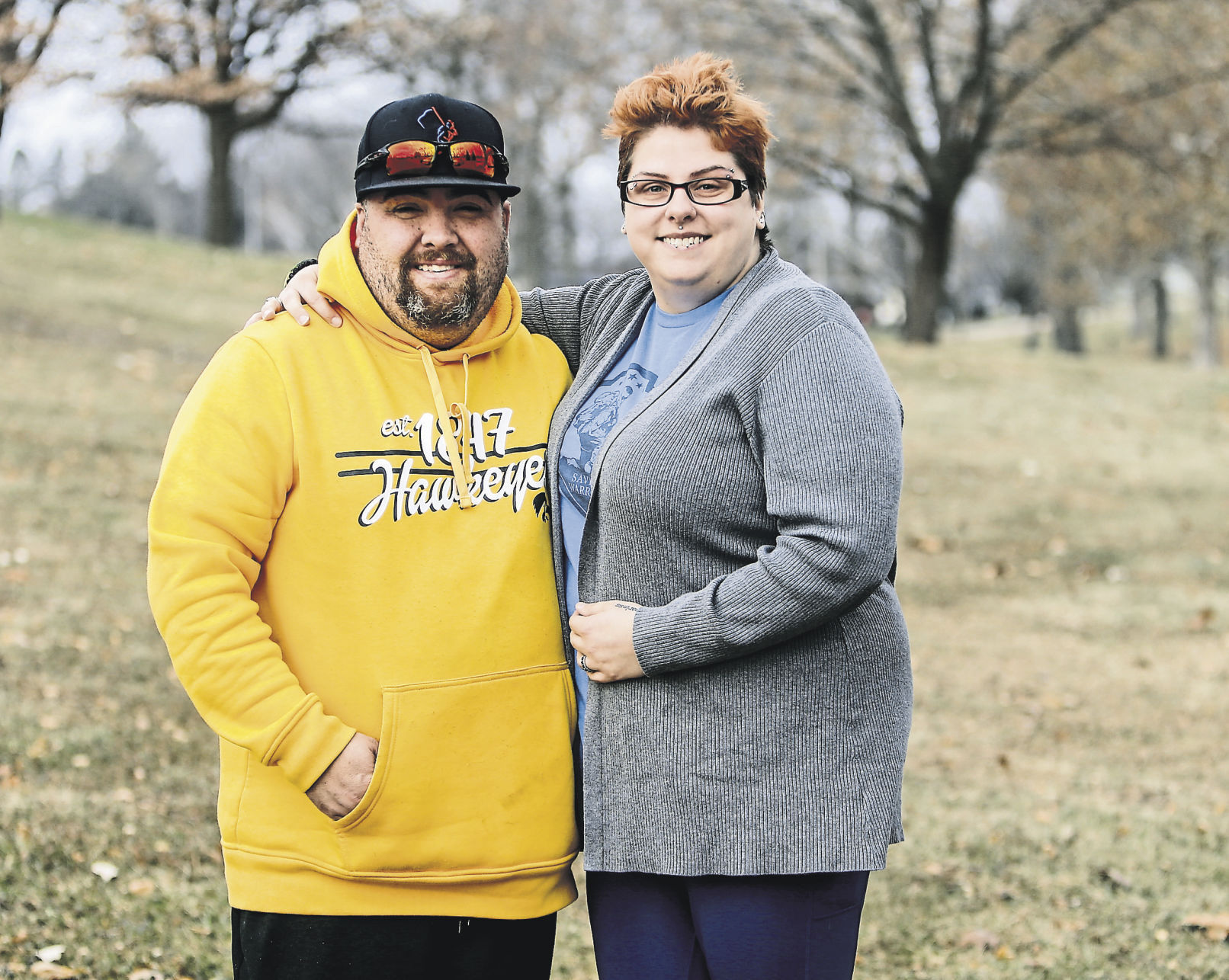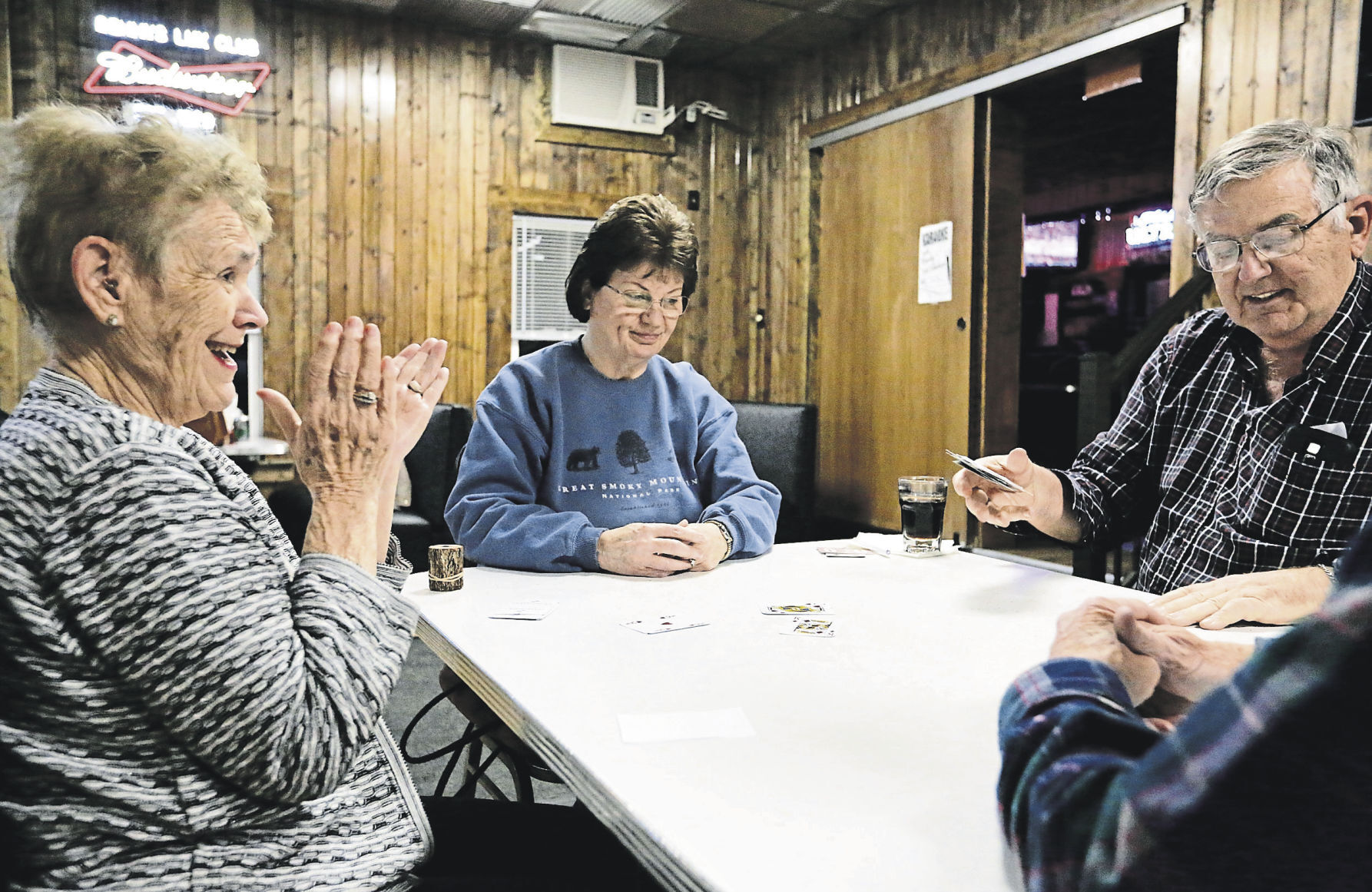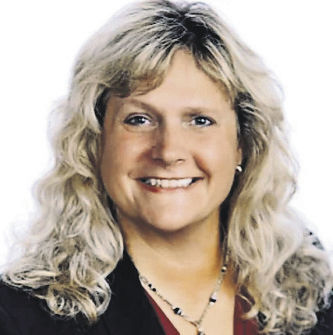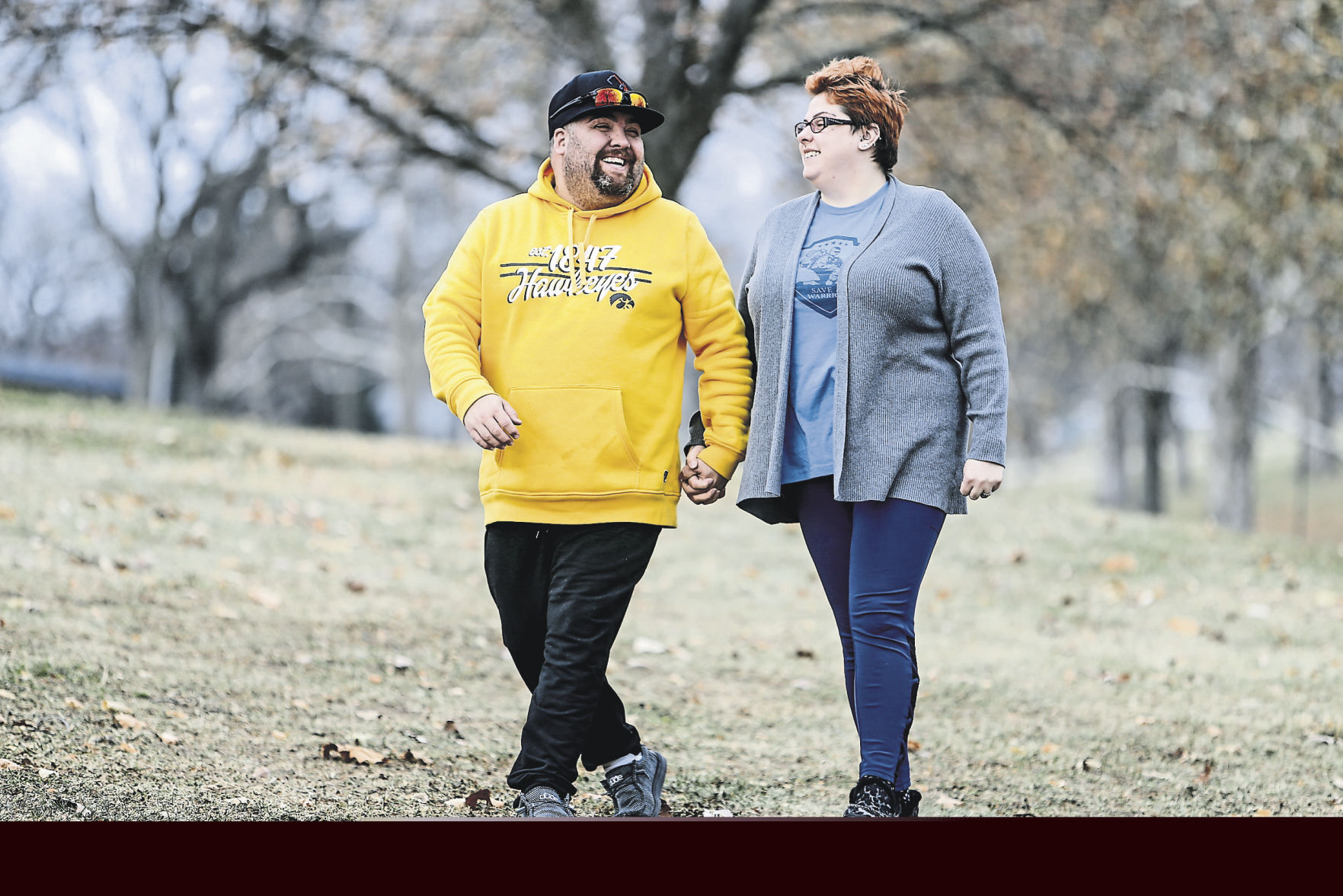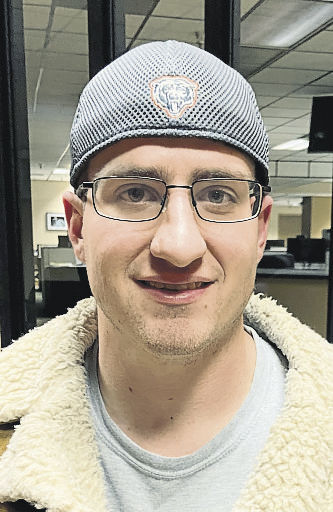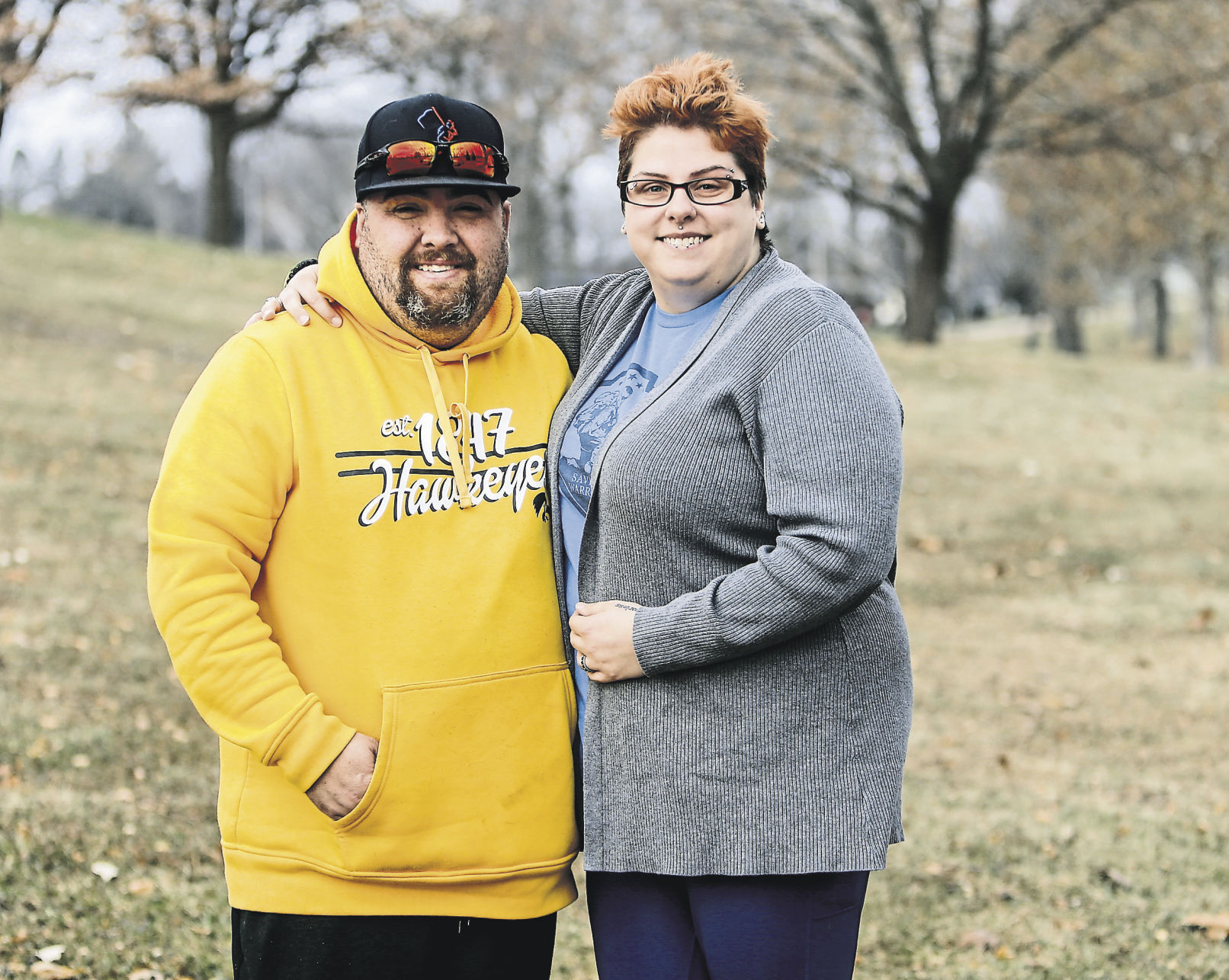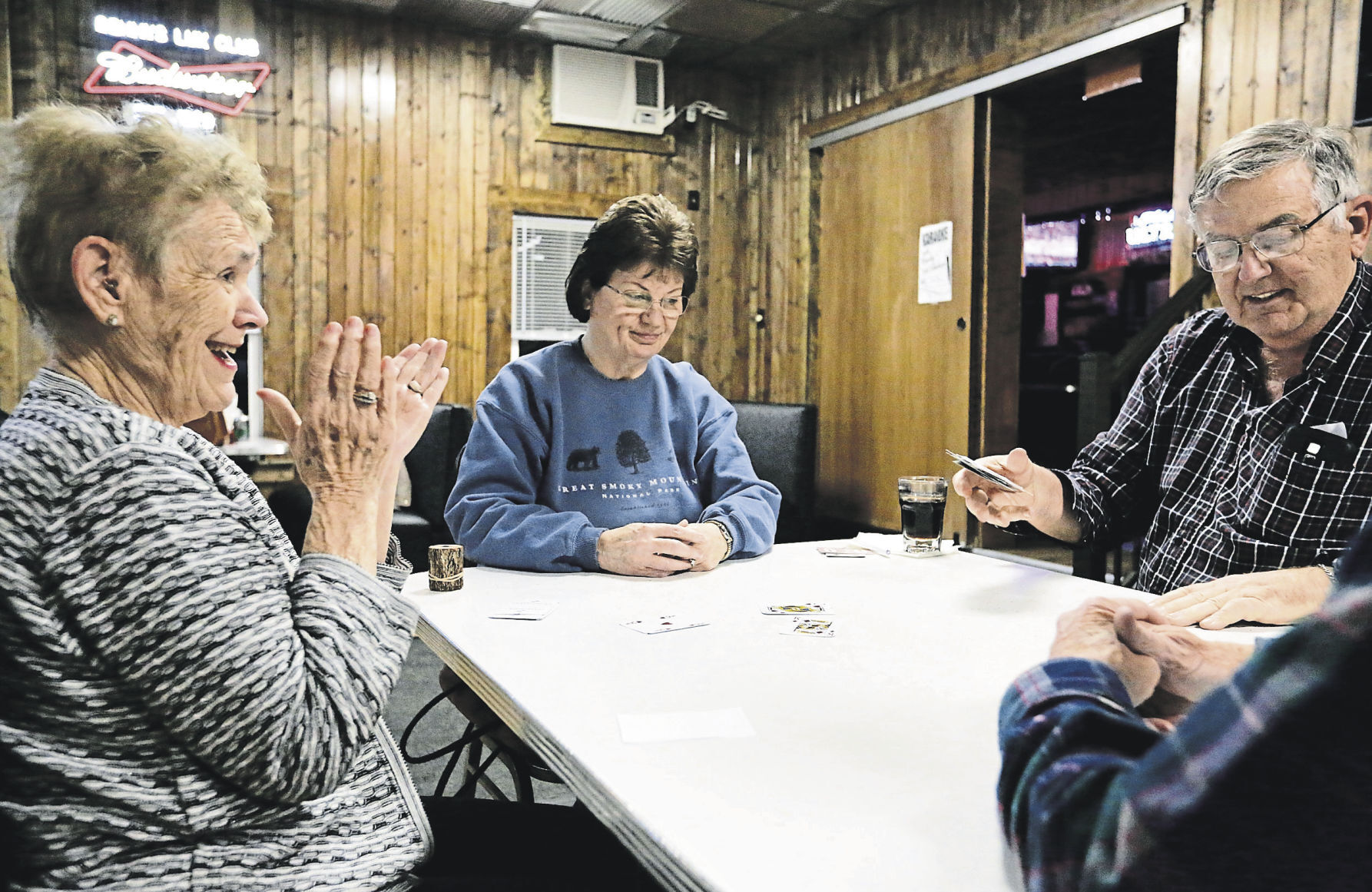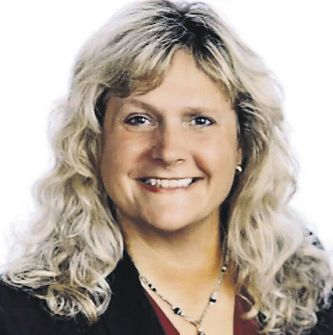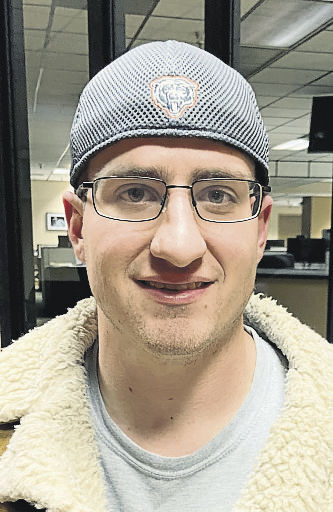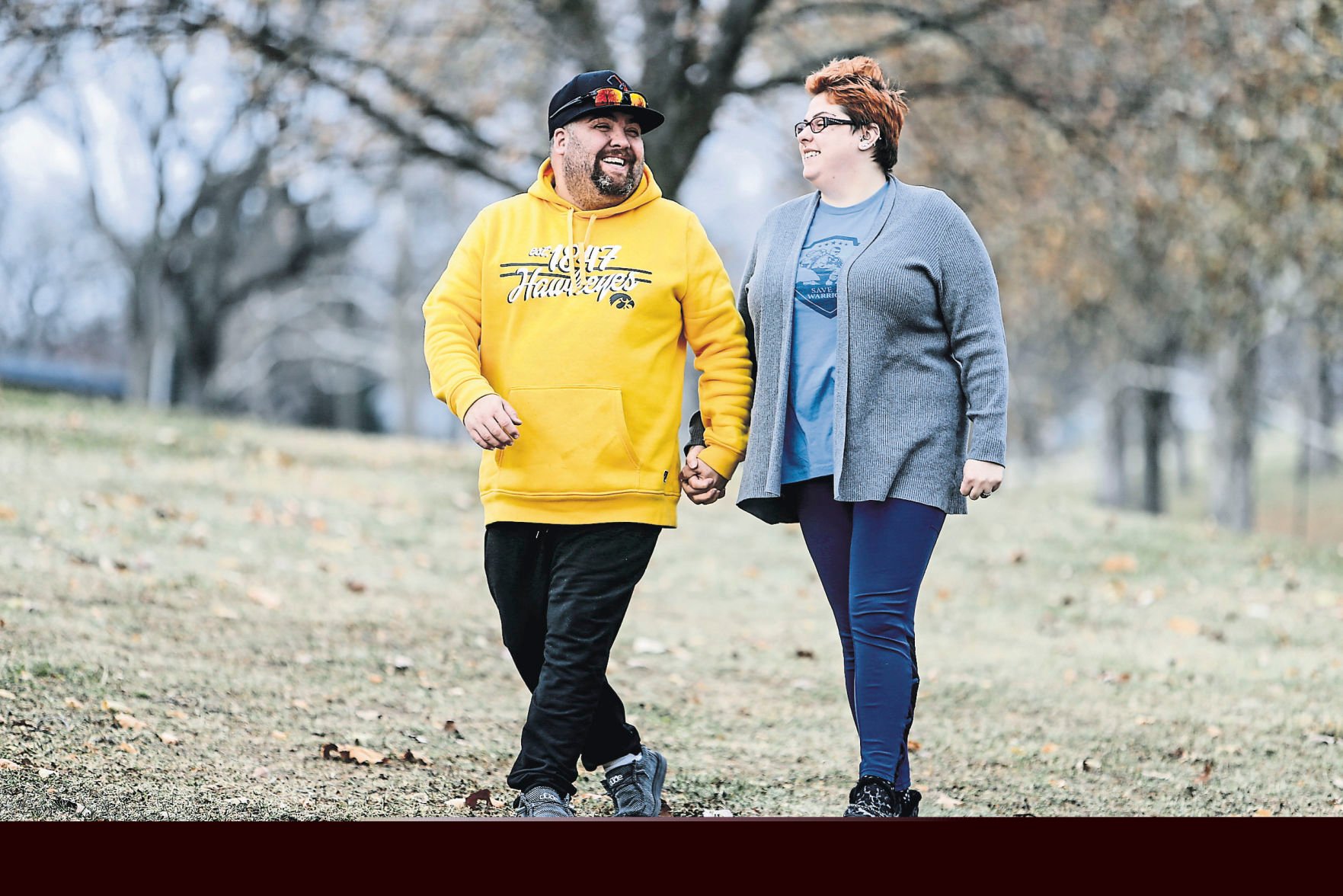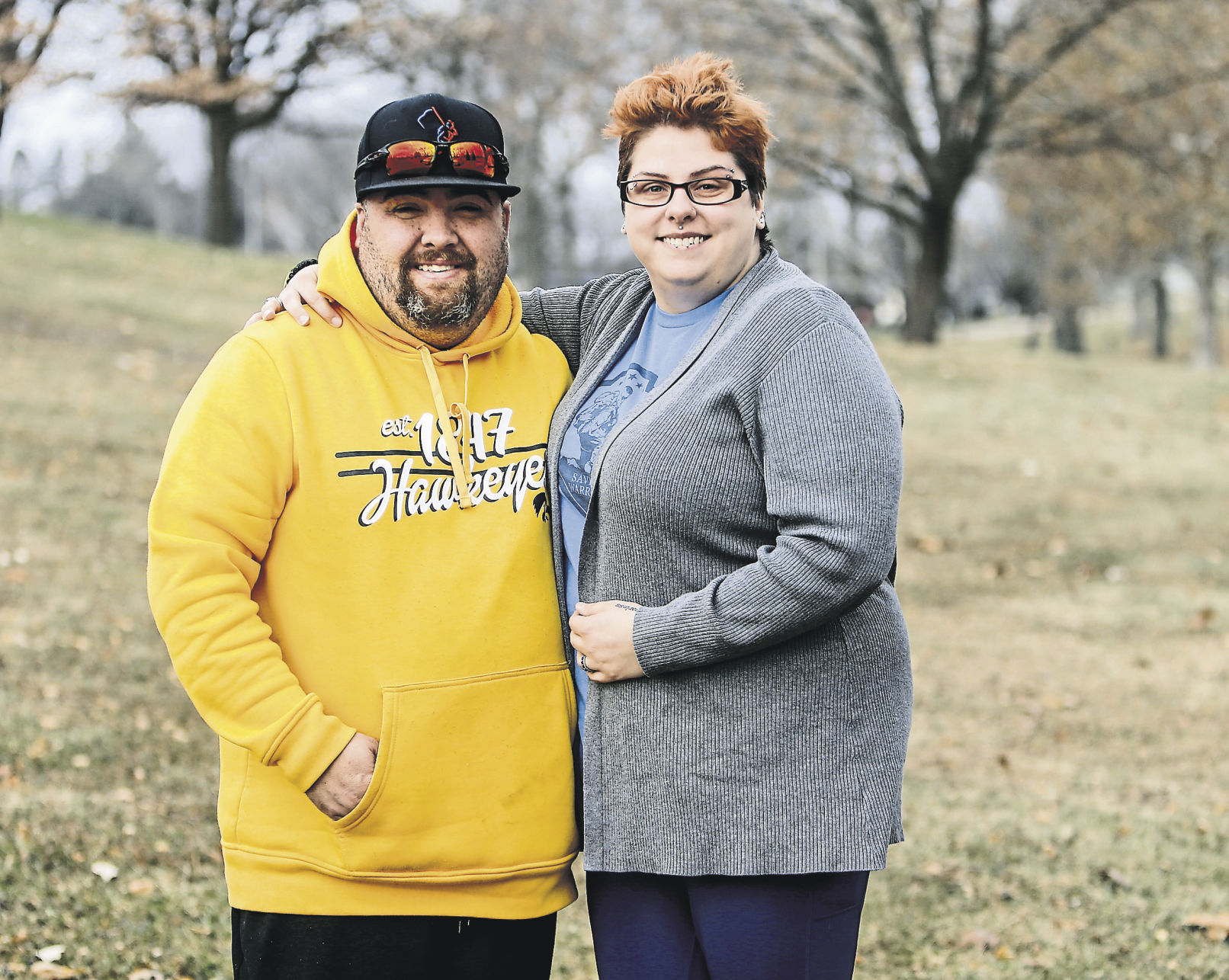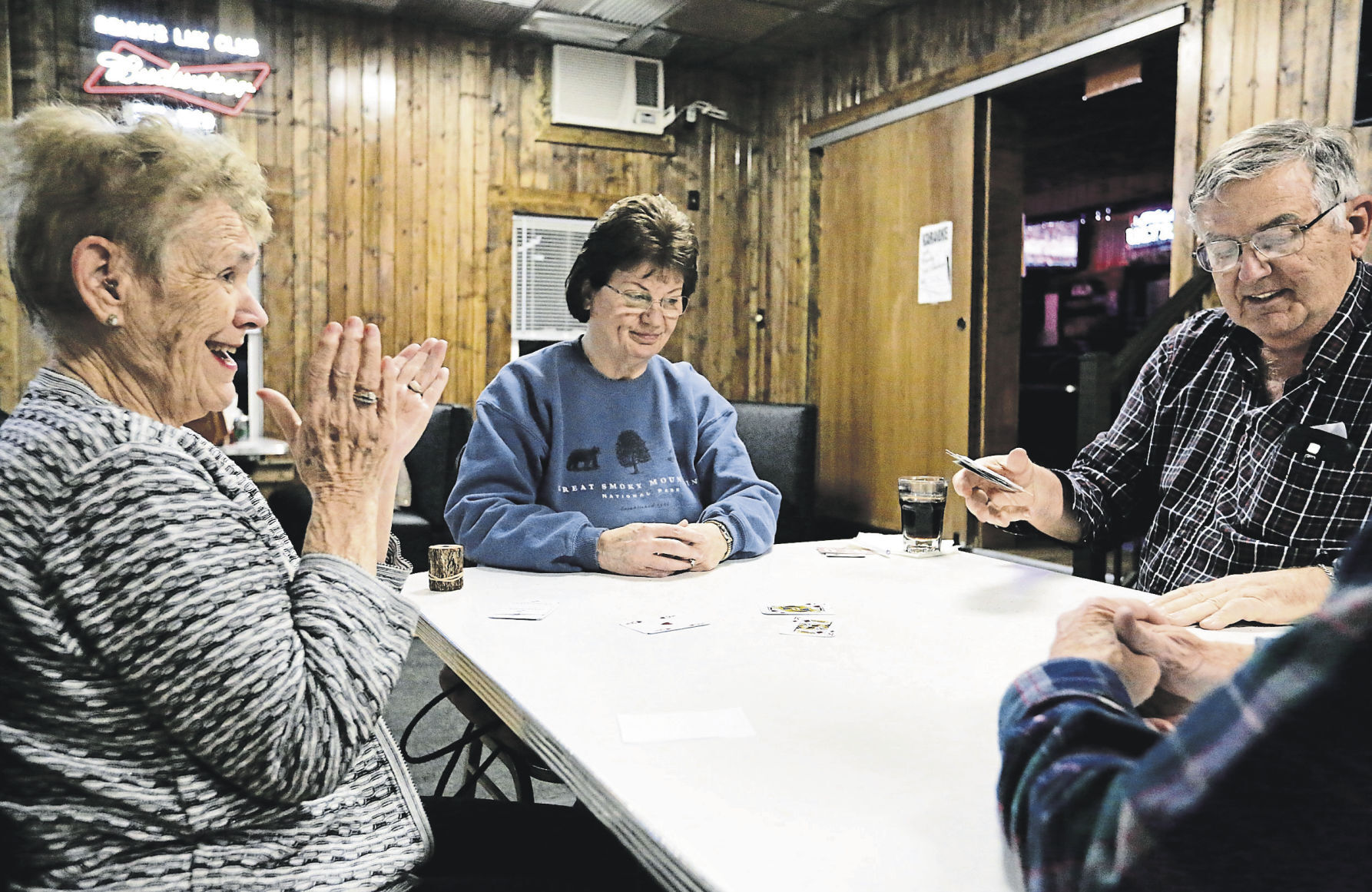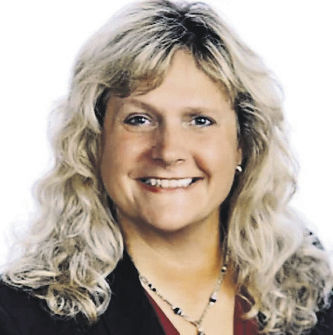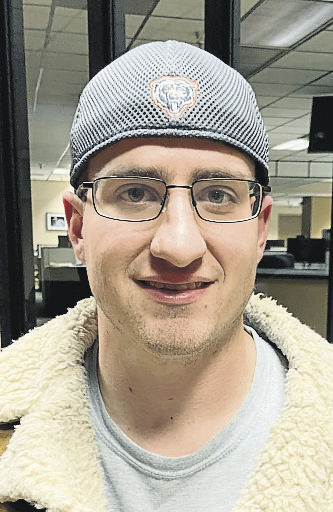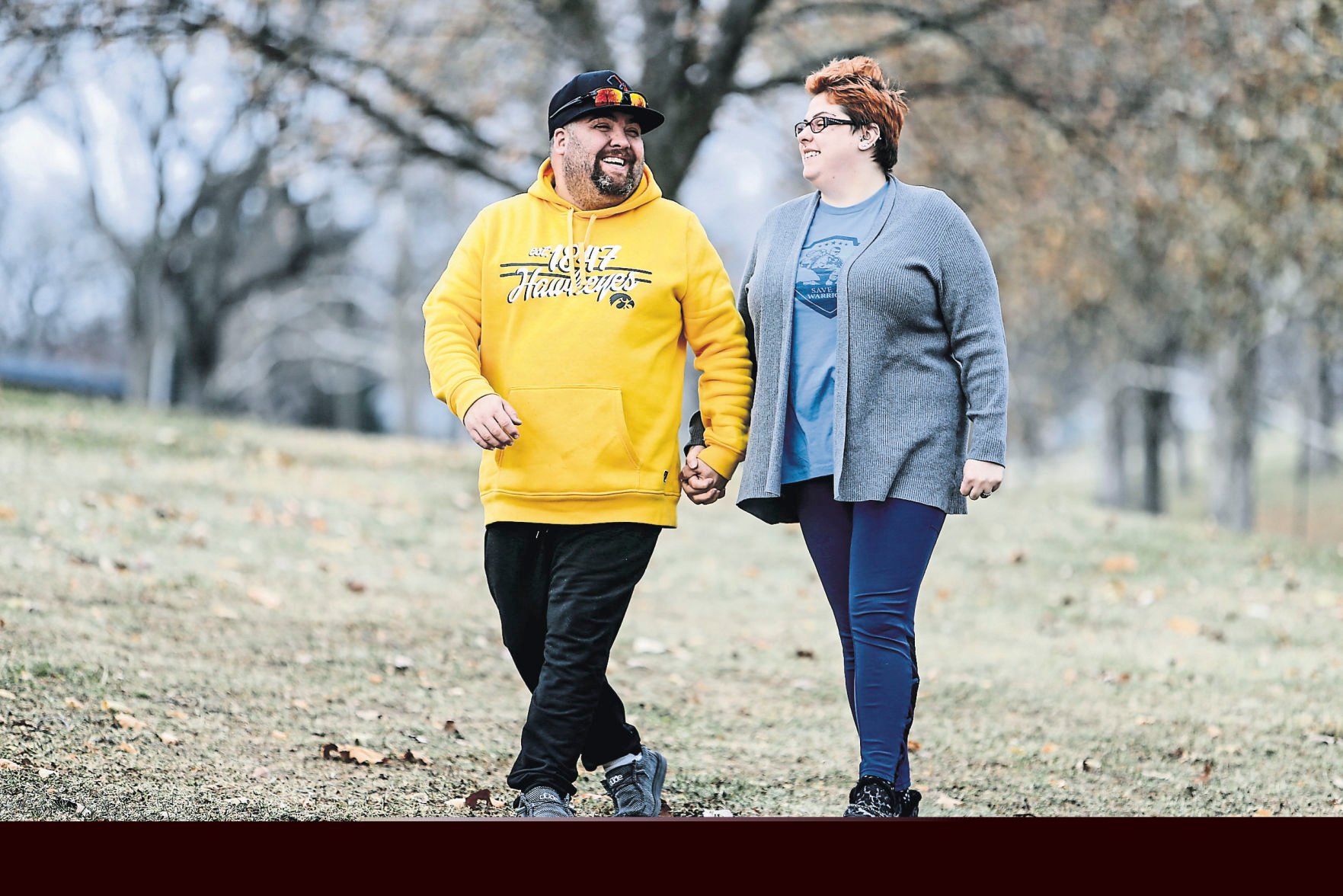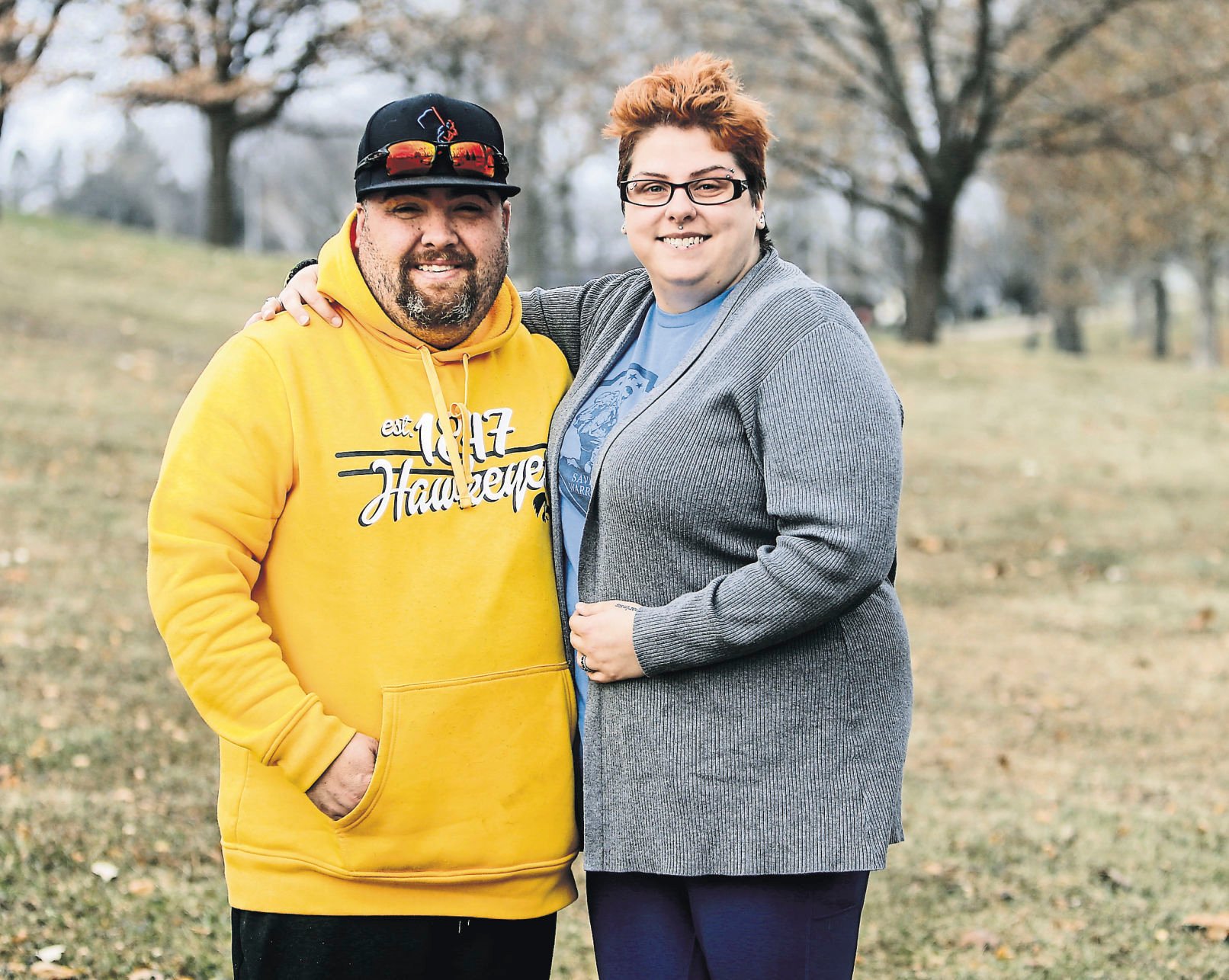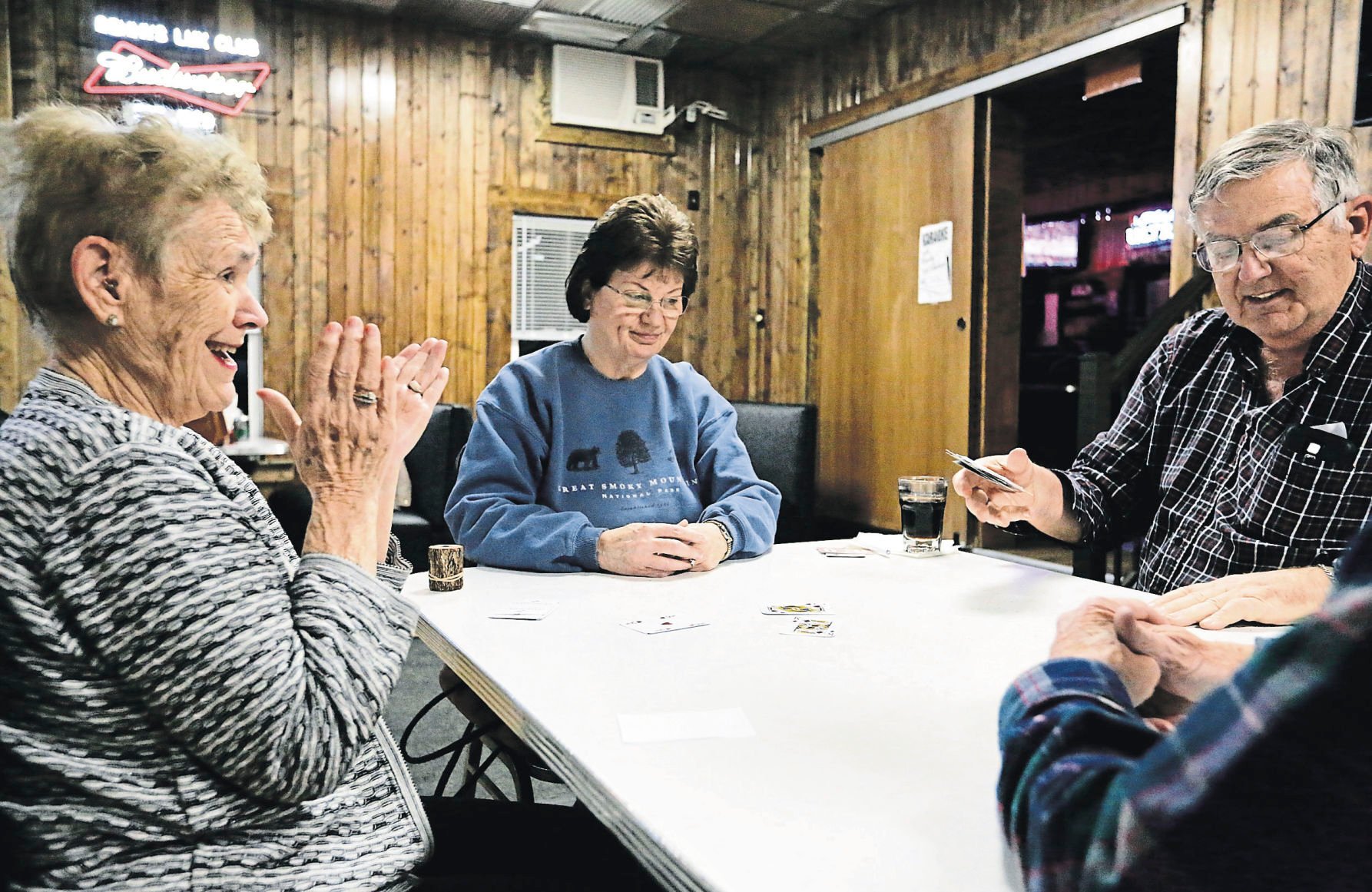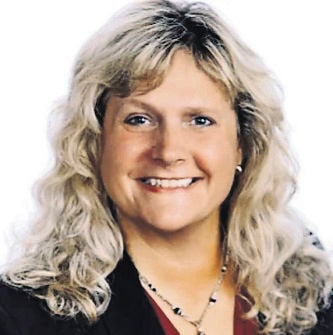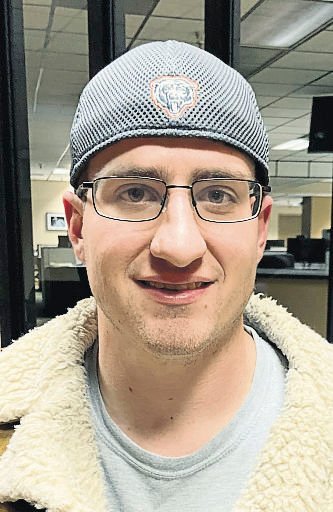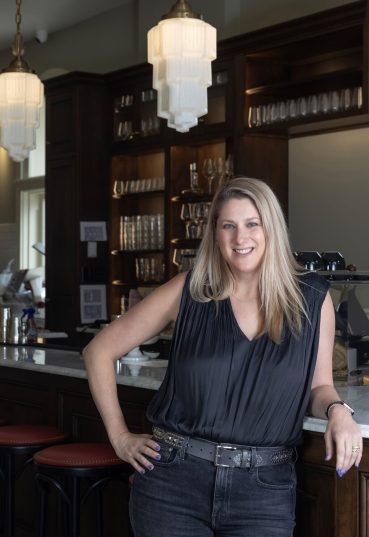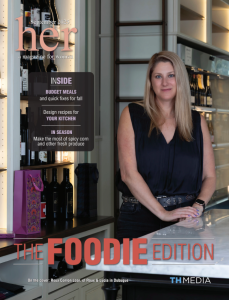Josh White wants to make friends.
He moved to Dubuque in September from the small tourist town of Lake Lure, N.C., with his wife, Amy, and their three children.
But Josh, 39, is challenged by the adjustment.
“Even though there are a lot of people here, I don’t have the greatest social skills, I guess,” he said. “I am one of those who would rather hibernate in my house than go to the bar because I don’t drink.”
Josh, who works as a pizza delivery driver, said making friends was easier when he was younger.
“I worked in a mall when I got out of the military, so I made friends that way,” he said.
That also is how he met Amy. Her car battery died and he gave her vehicle a jump.
“I guess you can say the sparks flew,” Josh said.
For many, as kids and even as 20-somethings, conditions were ripe for forming new connections with peers. School practically demanded the creation of new friendships.
But something changes when a person reaches middle age that requires a change in approach when friendships cease to be ready-made, Dubuquers say. A person has to be intentional in their efforts and become involved in their communities.
Social context
A person’s need for new friendships often arises during life transitions, said licensed mental health counselor Ronda Jasper, who runs a practice at Crossroads Counseling Center in Dubuque.
Perhaps they have recently moved, are coping with the death of a spouse or are working through a divorce.
“Because we are such social creatures … without connection, there is isolation and loneliness,” she said. “It’s not as easy to make friends as adults because we don’t have the same social context as we did when we were growing up.”
Whether it was playing outside with classmates or playing team sports, the setting was ripe for fostering friendships. Much of that stemmed from repetition.
In what they refer to as the “mere-exposure effect,” researchers have found that people tend to like things with repeated exposure, including people. They view them as more likable simply by seeing them more, highlighting the importance of attending social gatherings repeatedly.
As an adult, it’s important to incorporate those scenarios to the extent possible, Jasper said. Think fence line chats with neighbors or game nights.
“It doesn’t always happen quickly,” said John Peiffer, 31, “but if you go to the same joint every weekend, you see the same faces and people eventually say, ‘Hey, I’ve seen you around here.’”
The Dubuque native is employed as a builder at Andersen Windows and Doors. He moved to New Vienna, Iowa, eight years ago but recently returned to his hometown.
Peiffer fell out of touch with his high school friends after becoming a dad at age 19. Now a single father, raising his kids occupies a lot of his time.
Dubuque is a welcoming place where people will stop to talk, Peiffer said, so long as one makes an effort.
This year, he created a roller-skating group on Facebook, and members make regular outings to Allison-Henderson Park.
Self-outlook
In shaping a person’s social landscape, age is less important than their interests and wants, Jasper said.
She recommends that people who are unsure what type of friendship they are looking for take a personality inventory and interest assessment (easily accessible through a Google search online) and find activities that align with those traits. Like-minded people will follow.
It might be a cooking class, a group painting and wine night or volunteering with a local organization.
Jasper also suggests people evaluate their support system and the connections they have.
In the event emotions become overwhelming — whether it be fear, grief or isolation — a person might benefit from the expertise and support of a trained counselor, Jasper said.
Sometimes, the challenges of making friends stem from a person’s self-evaluation.
“In my head, it’s like no one wants to hang out with you. You’re too short or your hair’s too funny,” Josh said. “I don’t have the self-confidence that I used to have.”
Jasper encounters clients who predominately have one of two outlooks. One group believes in themselves and have the confidence that they are capable of building friendships. Others don’t.
Science backs the finding that self-attitudes can determine whether the search for new friendships becomes a self-fulfilling prophecy.
In one study, scientists found that people who believe friendship comes with luck were more likely to report feeling lonely years later, while those who thought it resulted from concerted effort were less likely to do so. Researchers hypothesized that beliefs influenced the effort people put into making new friends.
Behavior can, in turn, influence perception of social groups. A study found that students’ perceptions of a classroom were more likely to view it as welcoming if they interacted with others. The engagers also were more likely to believe that classmates liked them.
Life circumstances
Of course, life circumstances can get in the way.
Several members of the Dubuque friendship group, Social Connections for Singles, are unable to drive.
Predominately seniors, the interests of several members do not always line up with what is available for older adults.
Maureen Tyne, 67, who oversees membership and composes the group’s newsletter, has no desire to go to bars, yet, “where do you go, if you don’t drink or you don’t gamble?”
“If you don’t play euchre in this town, I don’t know what you do,” she said, with a laugh. “Well, church I guess.”
Every Friday evening, the social group meets at the Shot Tower Inn for dinner, while Monday brings euchre night at Denny’s Lux Club. Members also organize other outings throughout the month.
Tyne said it can be hard being single and finding things to do if you don’t want to go alone, but the group helps increase the chances a person will find someone with the same interests.
Tapping into resources
While social media is not the same as face-to-face interaction, it can be a valuable resource for those who are struggling to form in-person connections or who feel trapped, Jasper said.
The resource has become all the more important following the COVID-19 business closures and lockdowns,
For her part, Amy White, 35, said she coped with the initial loneliness of being a Dubuque transplant by posting in a parent’s group on social media.
“I’m hoping to connect with other parents so I won’t feel so alone when I get to the area,” she added in her message.
Amy, who works as a teacher at a child care center, said she hoped to rebuild her “village.”
Oodles of people responded.
Amy reached out to one woman and offered to help her with child care.
Now, she is Amy’s greatest friend.
Bennet Goldstein writes for the Telegraph Herald.

